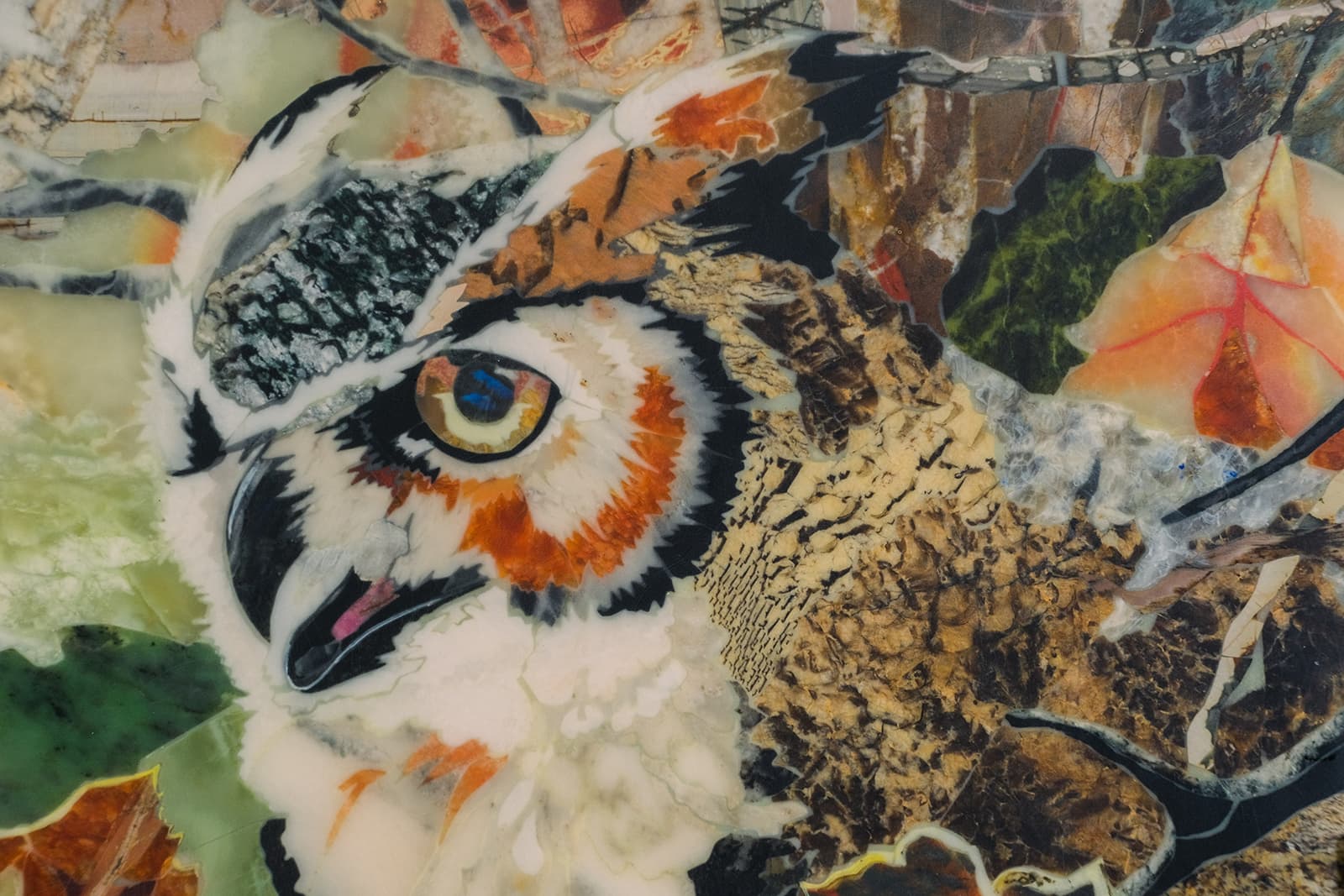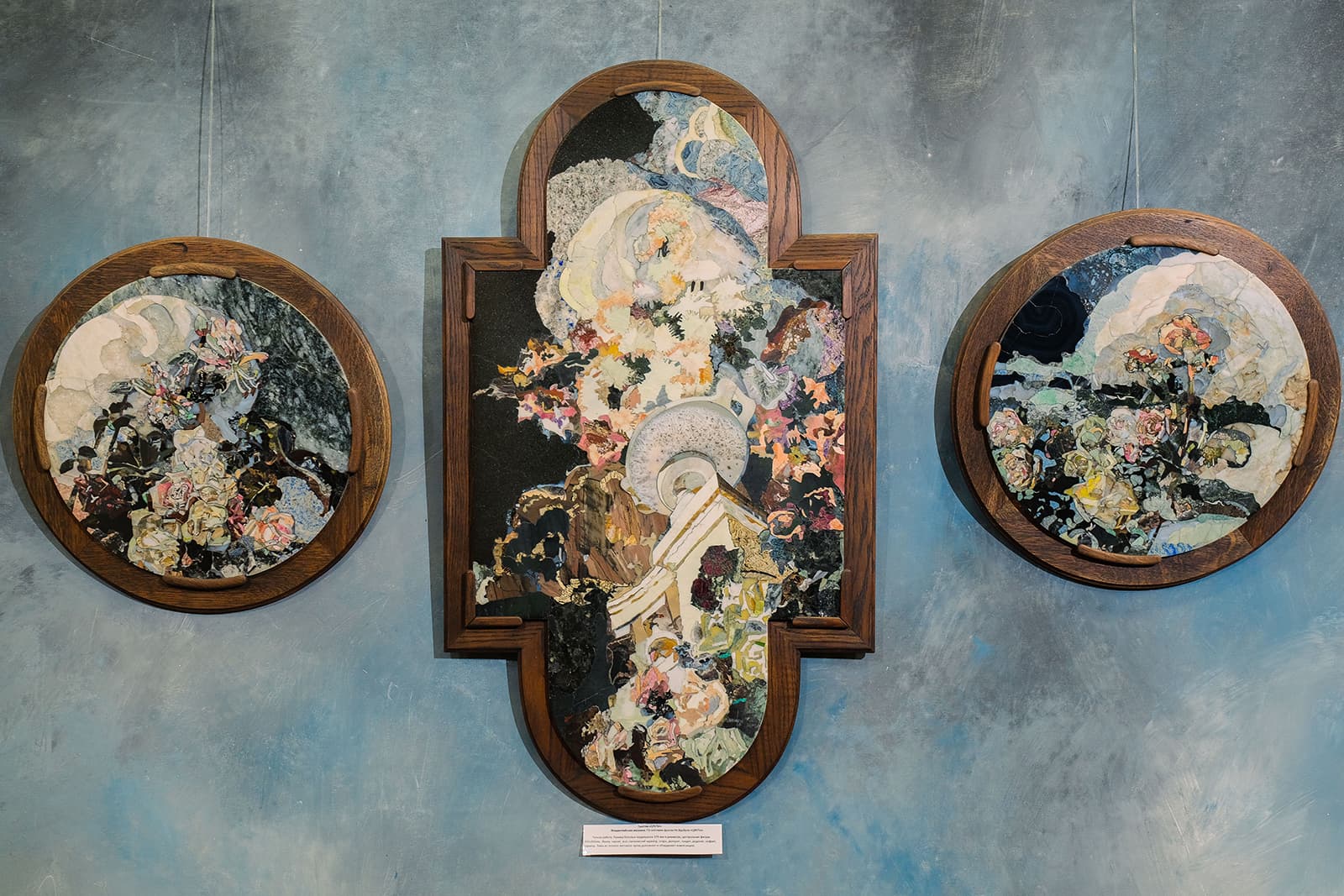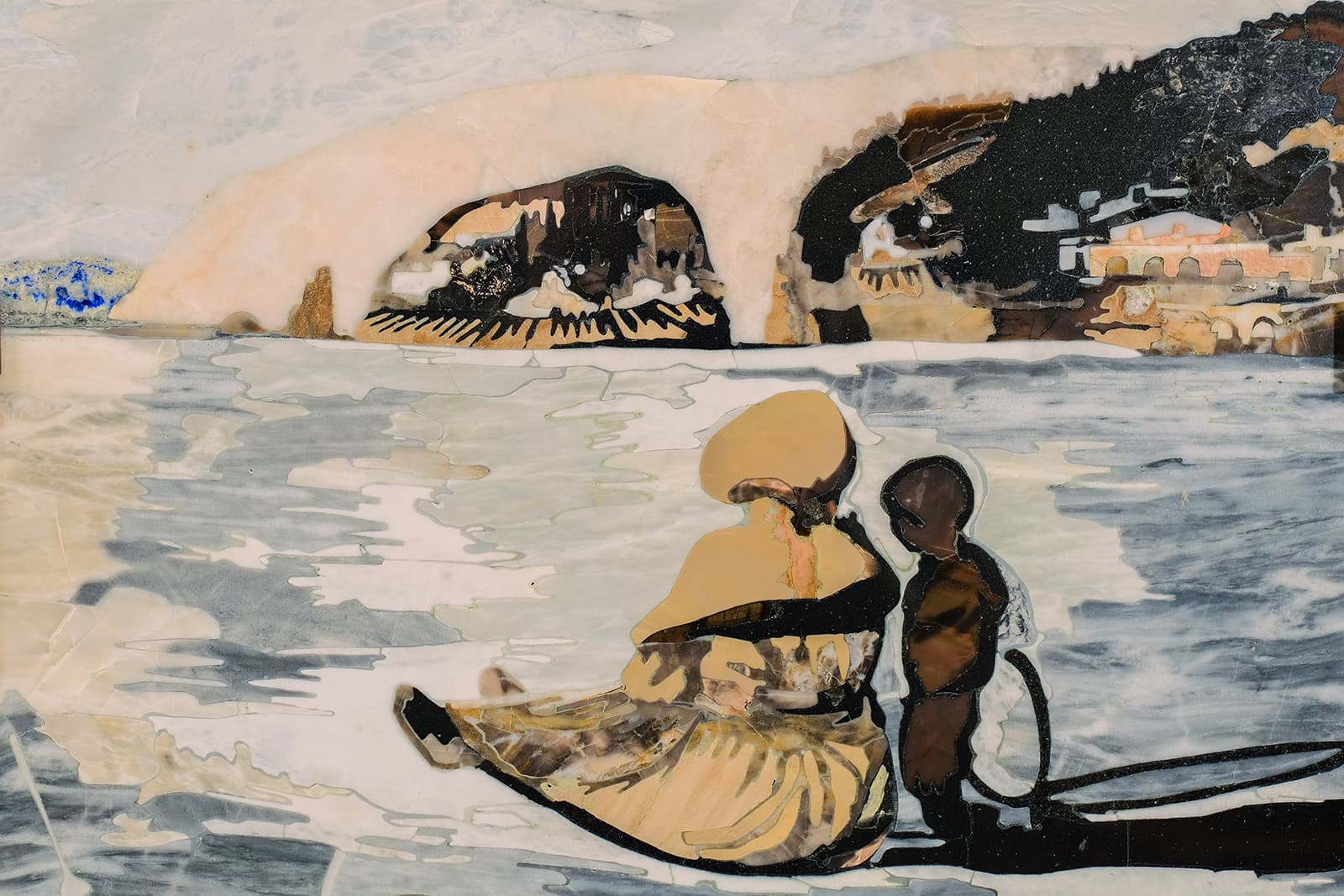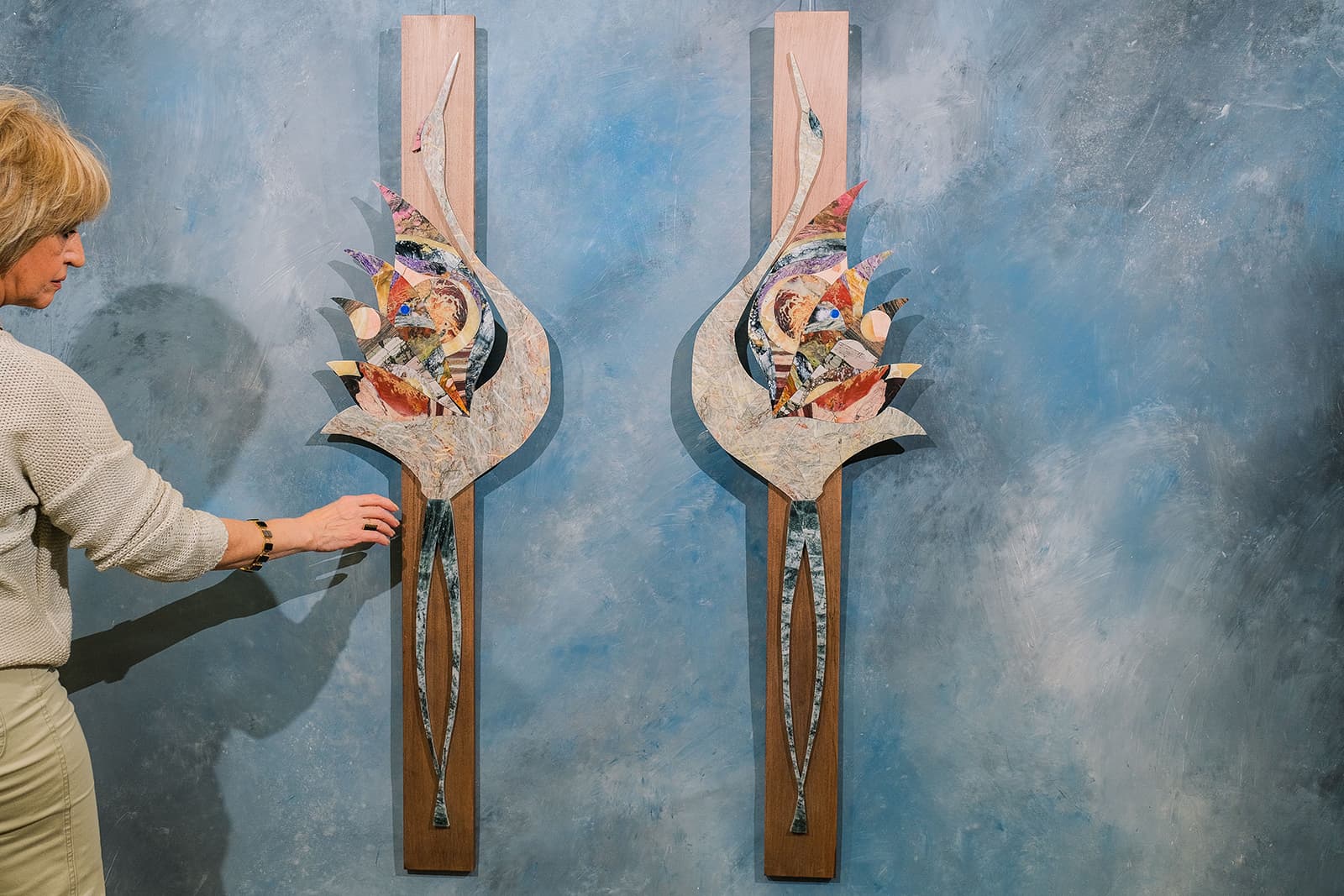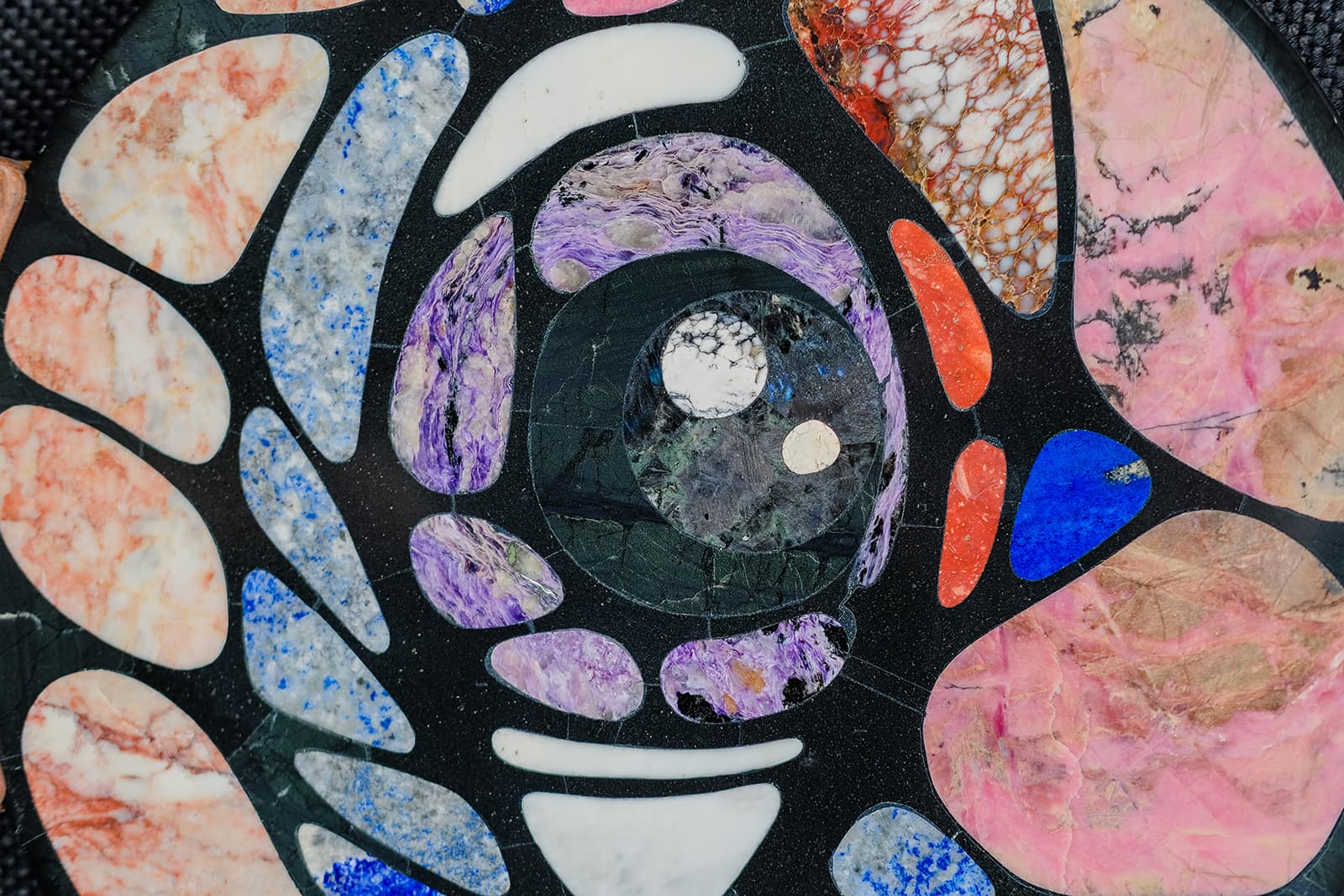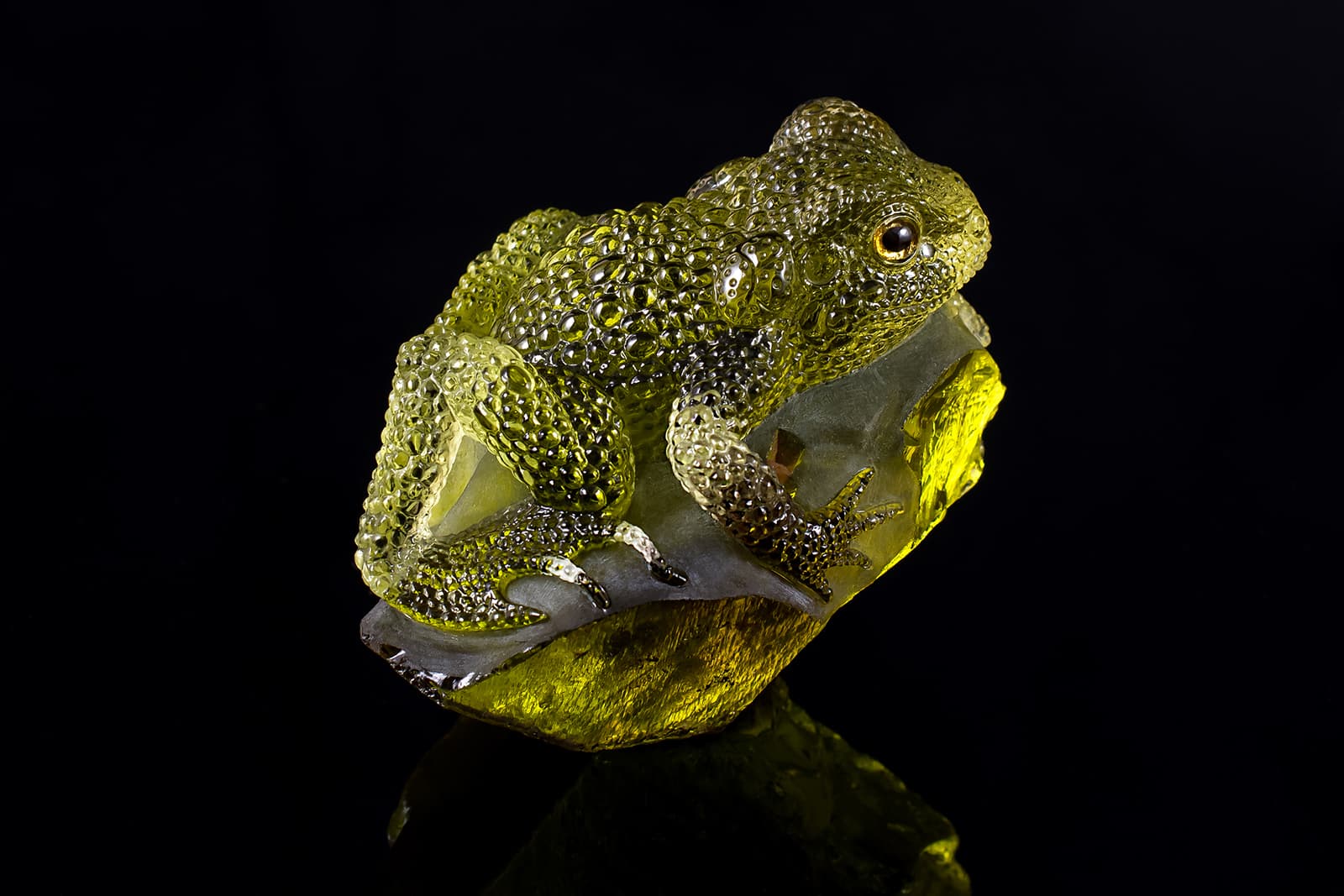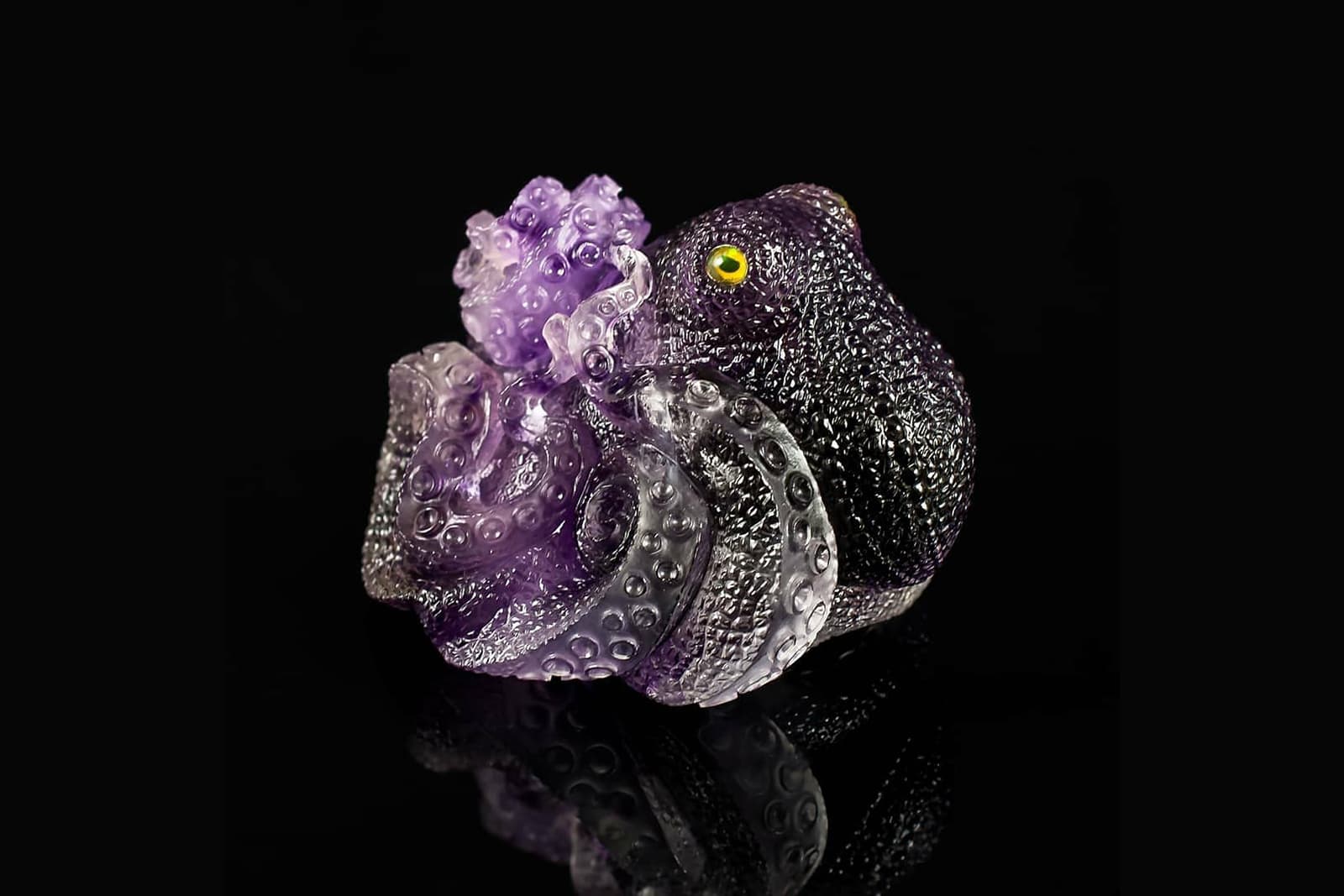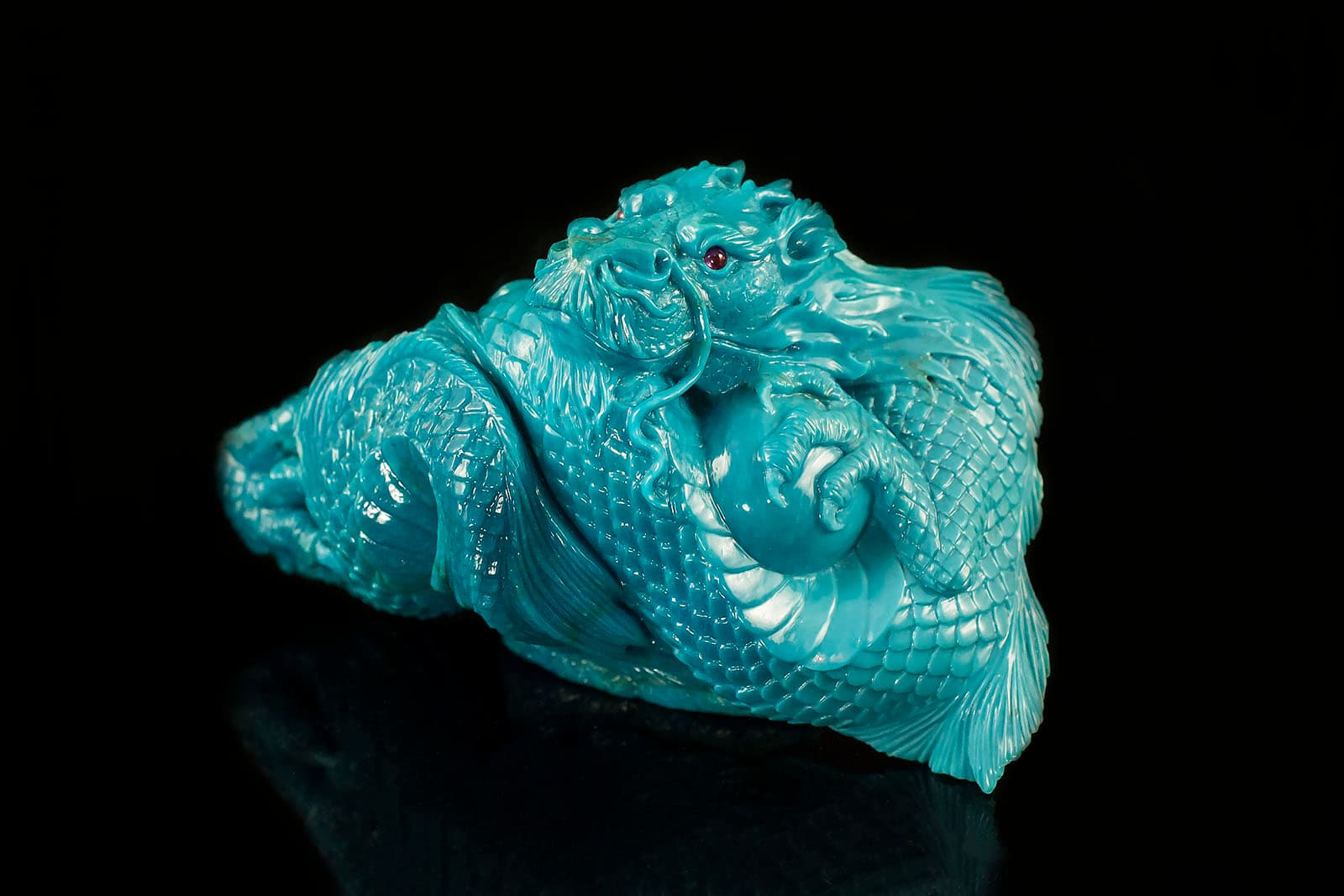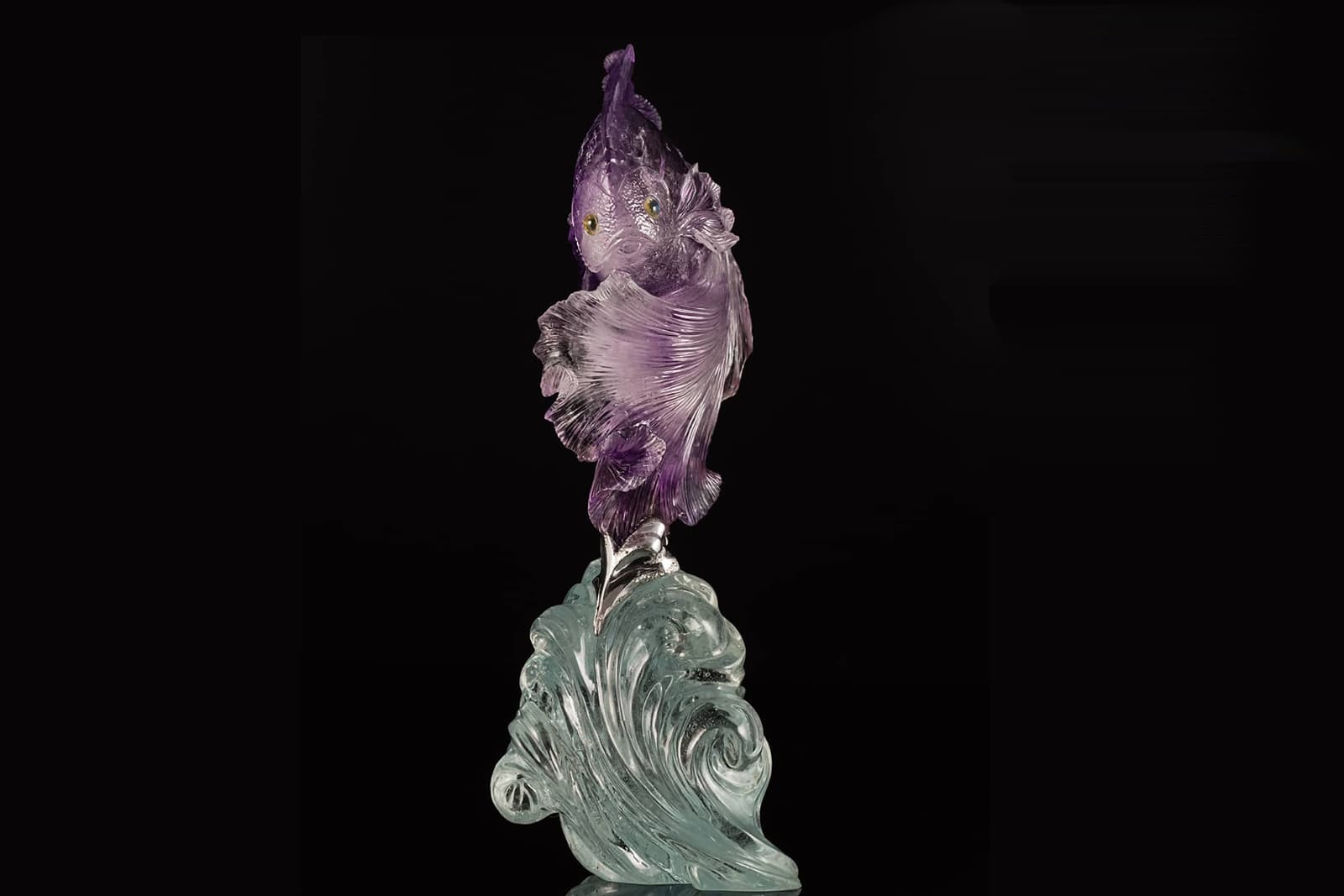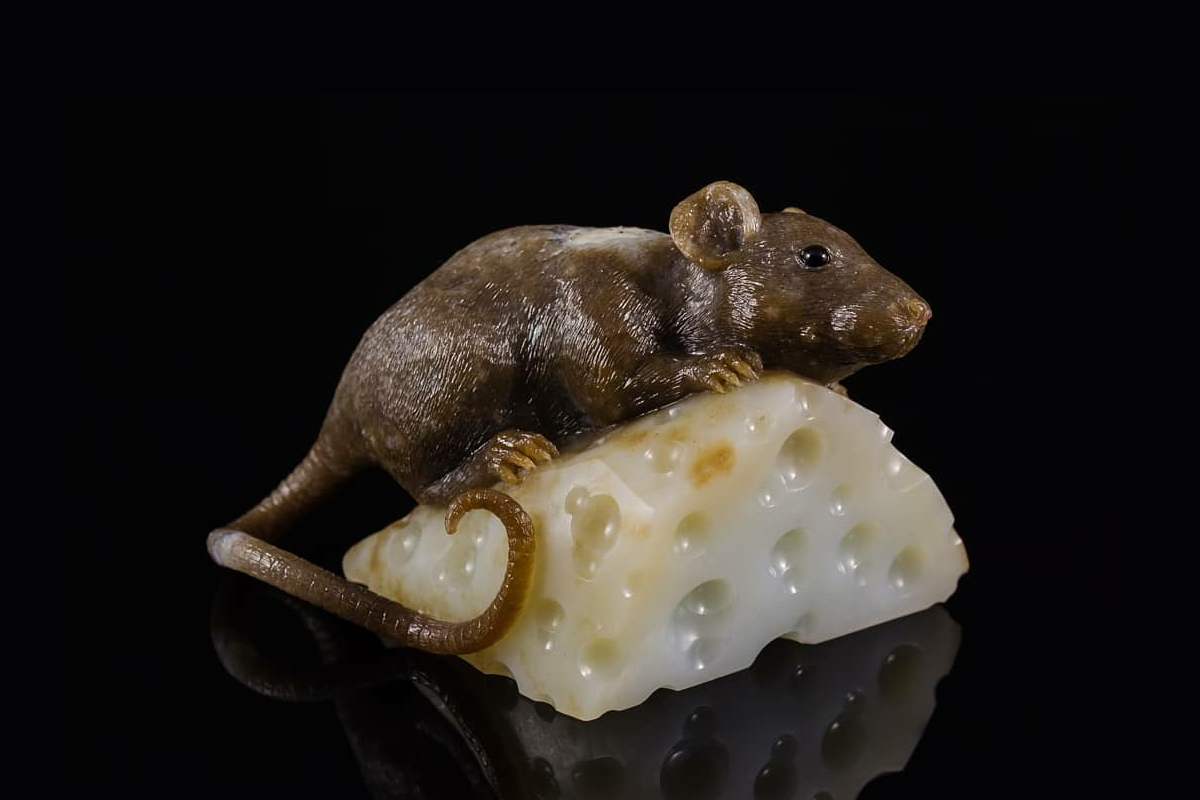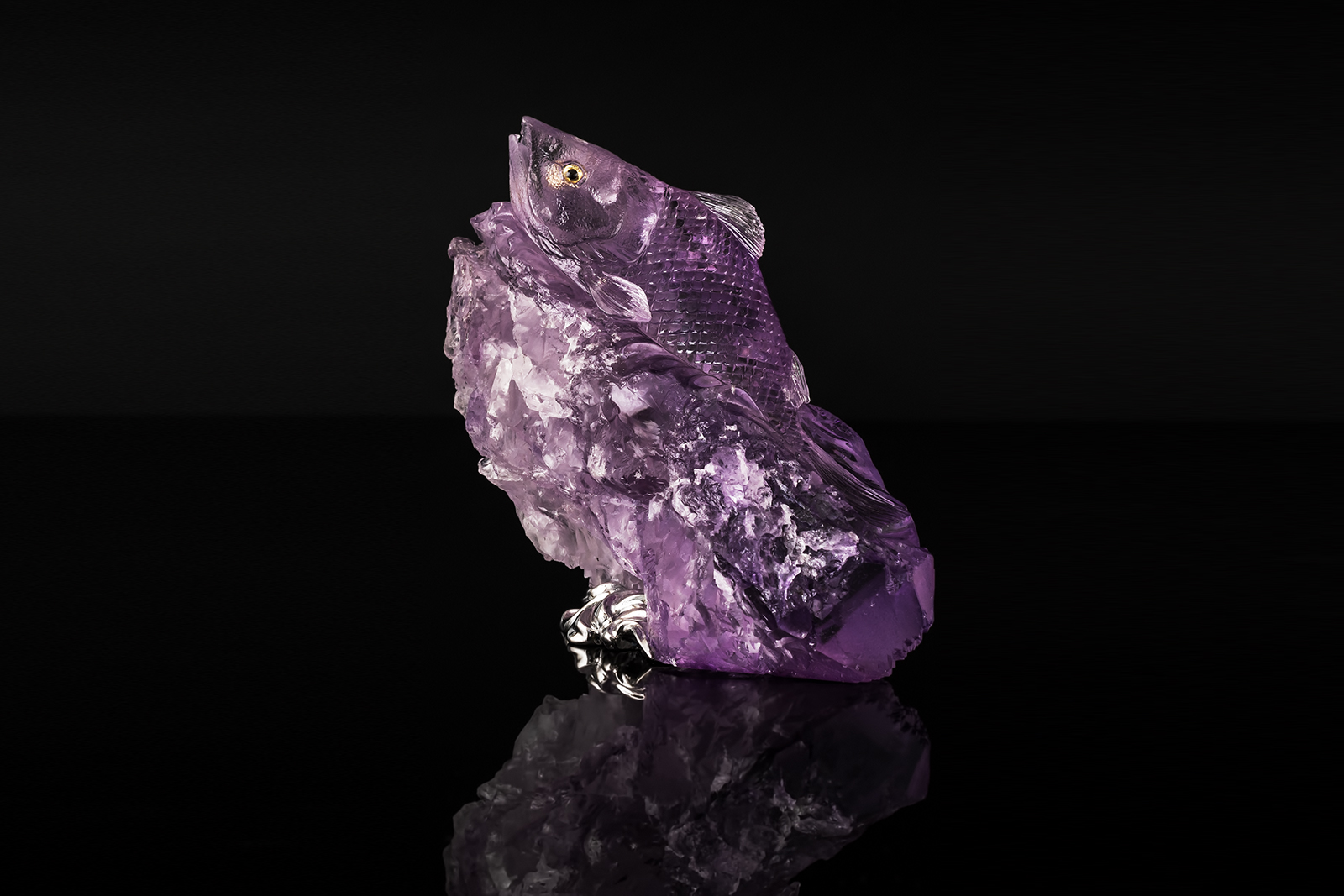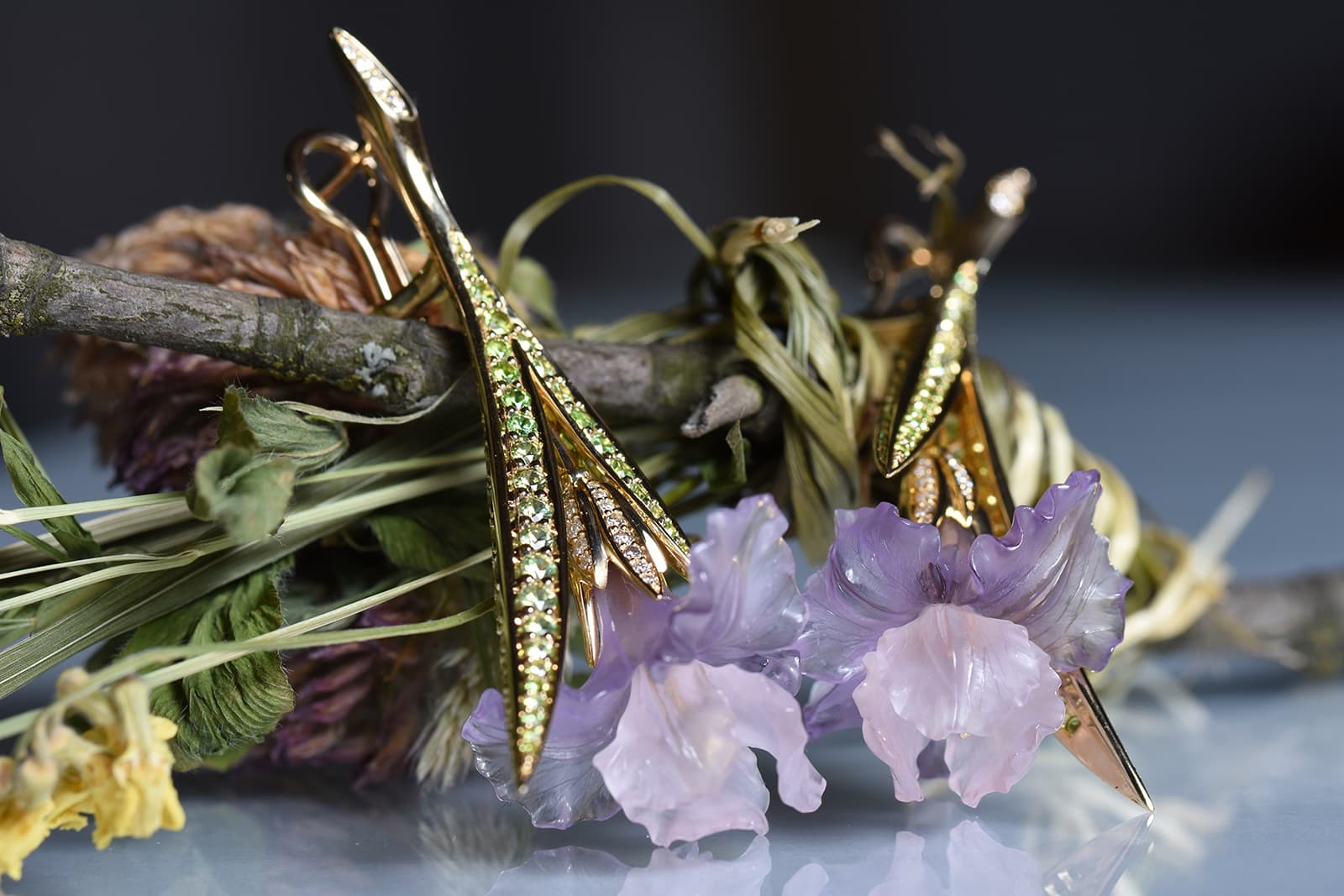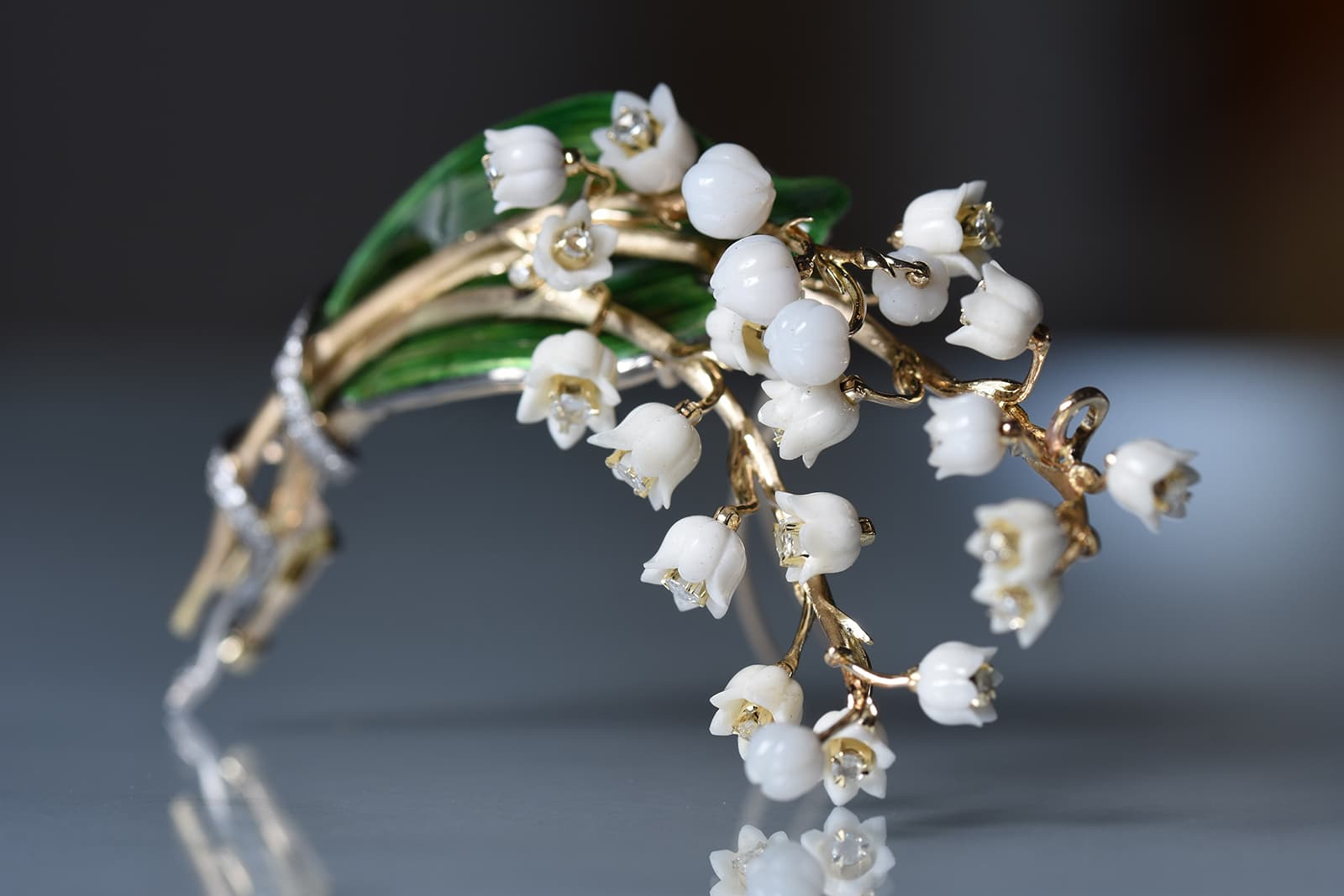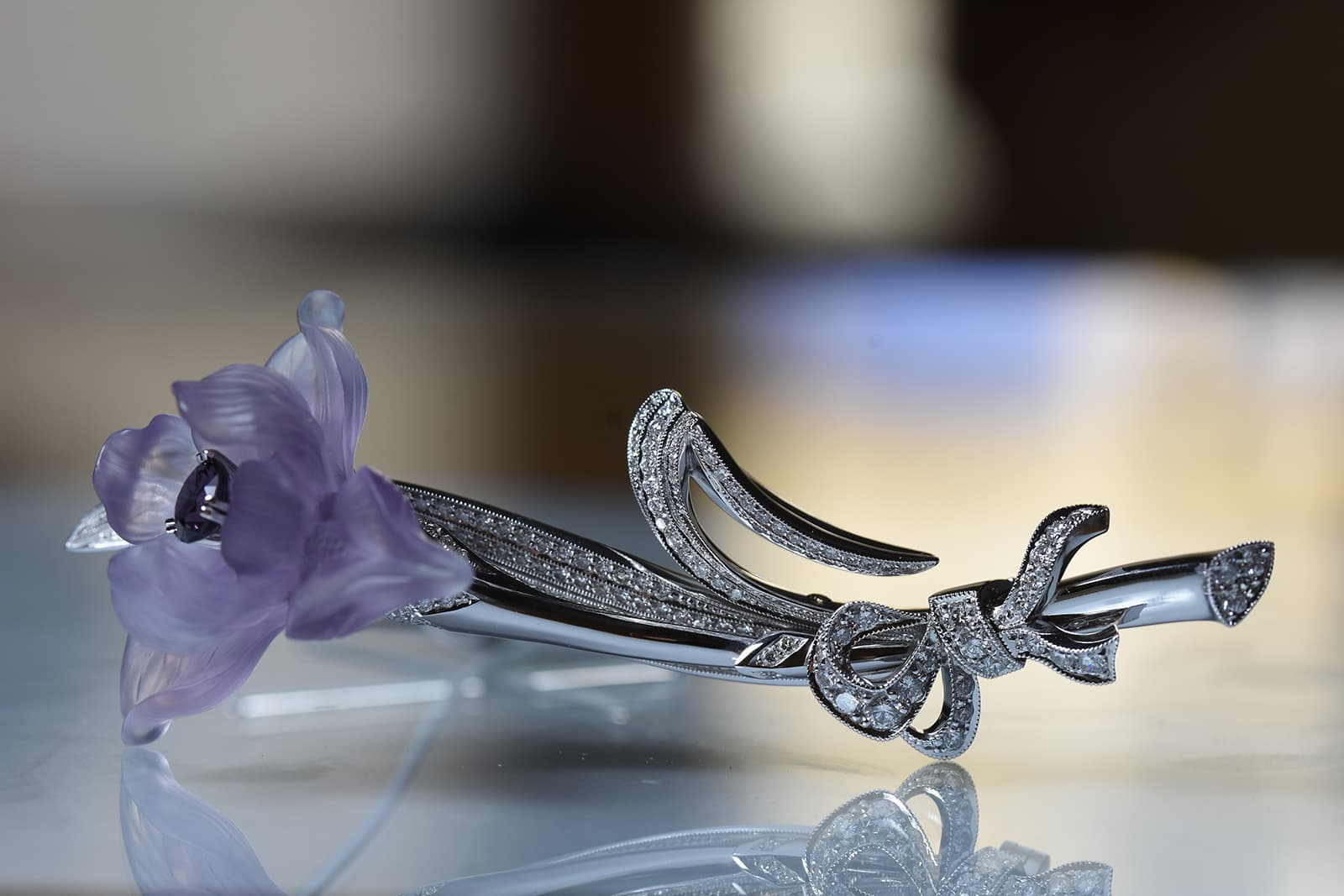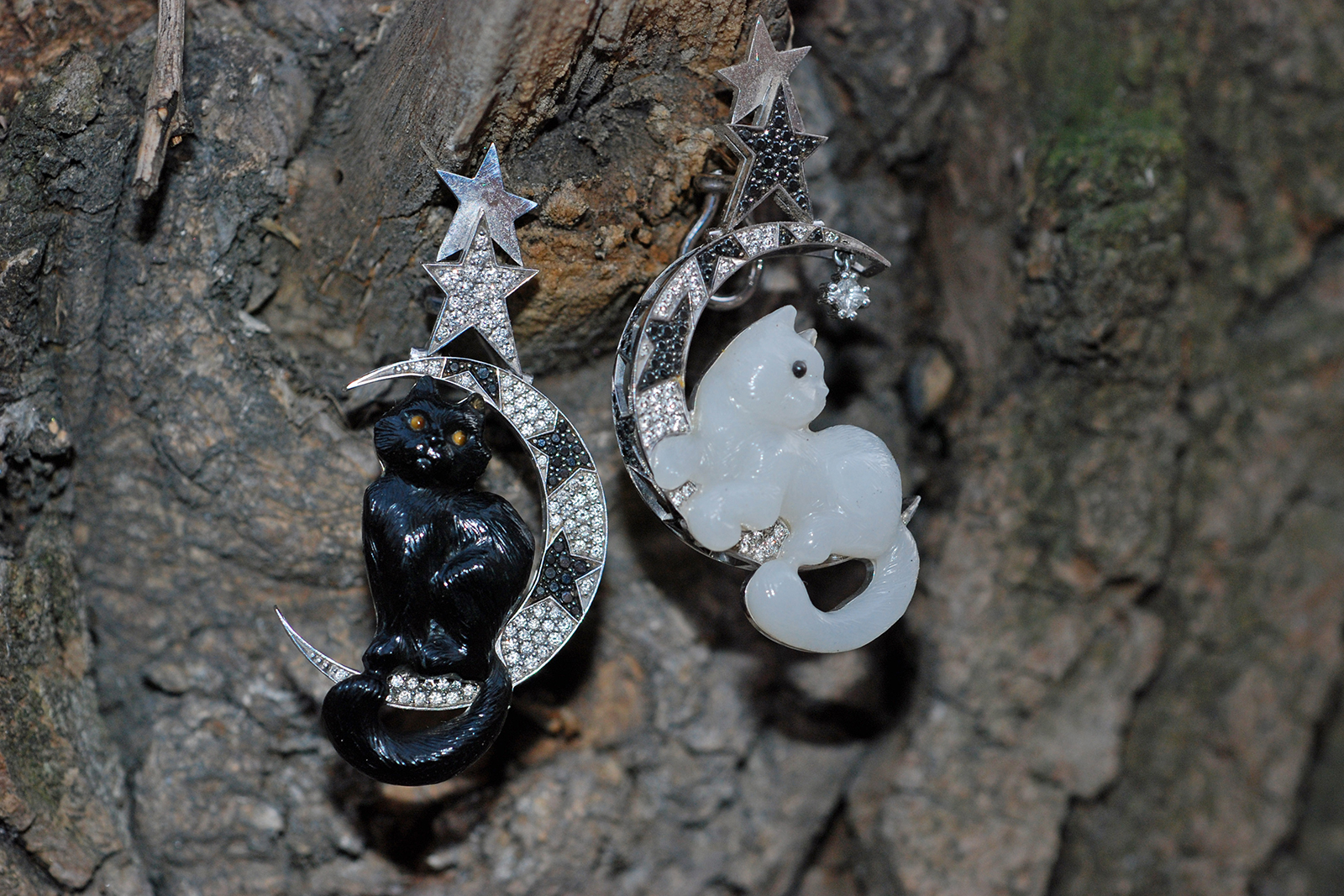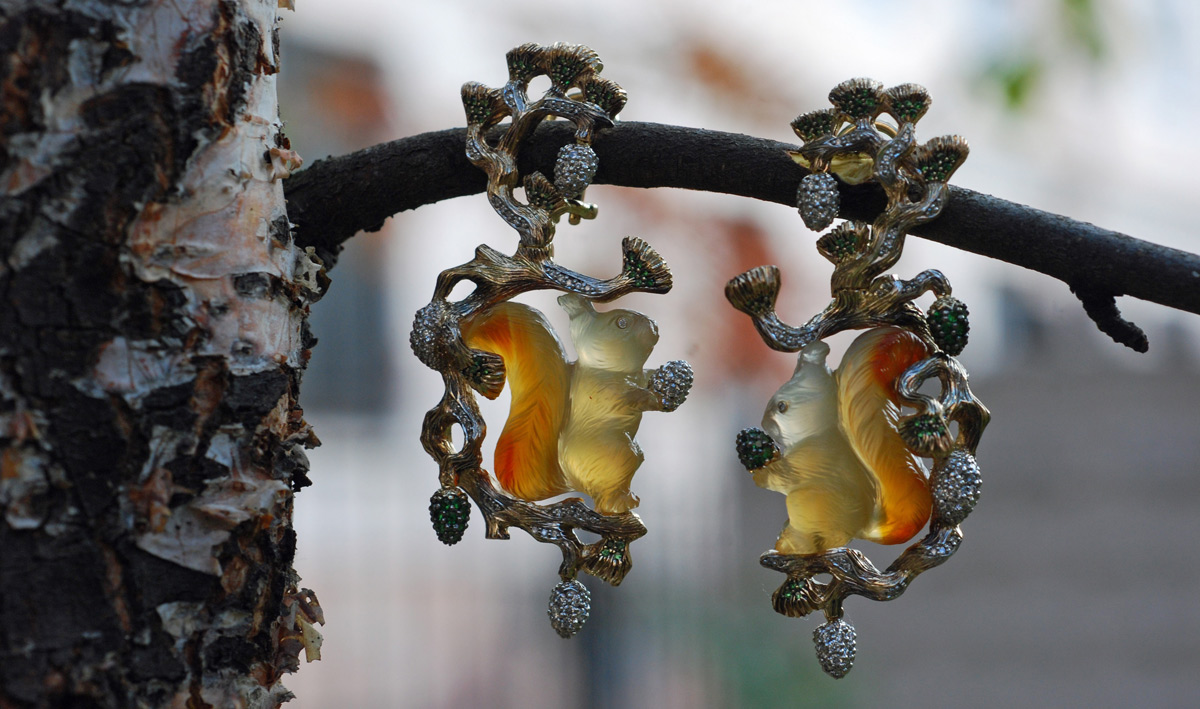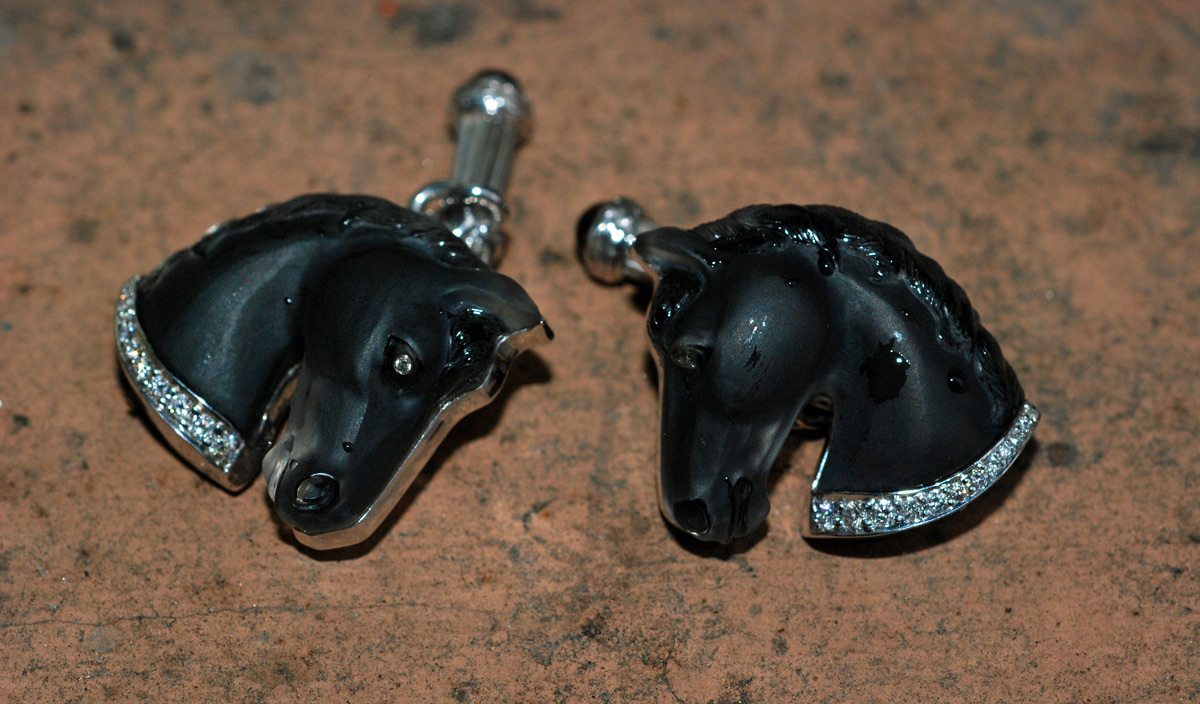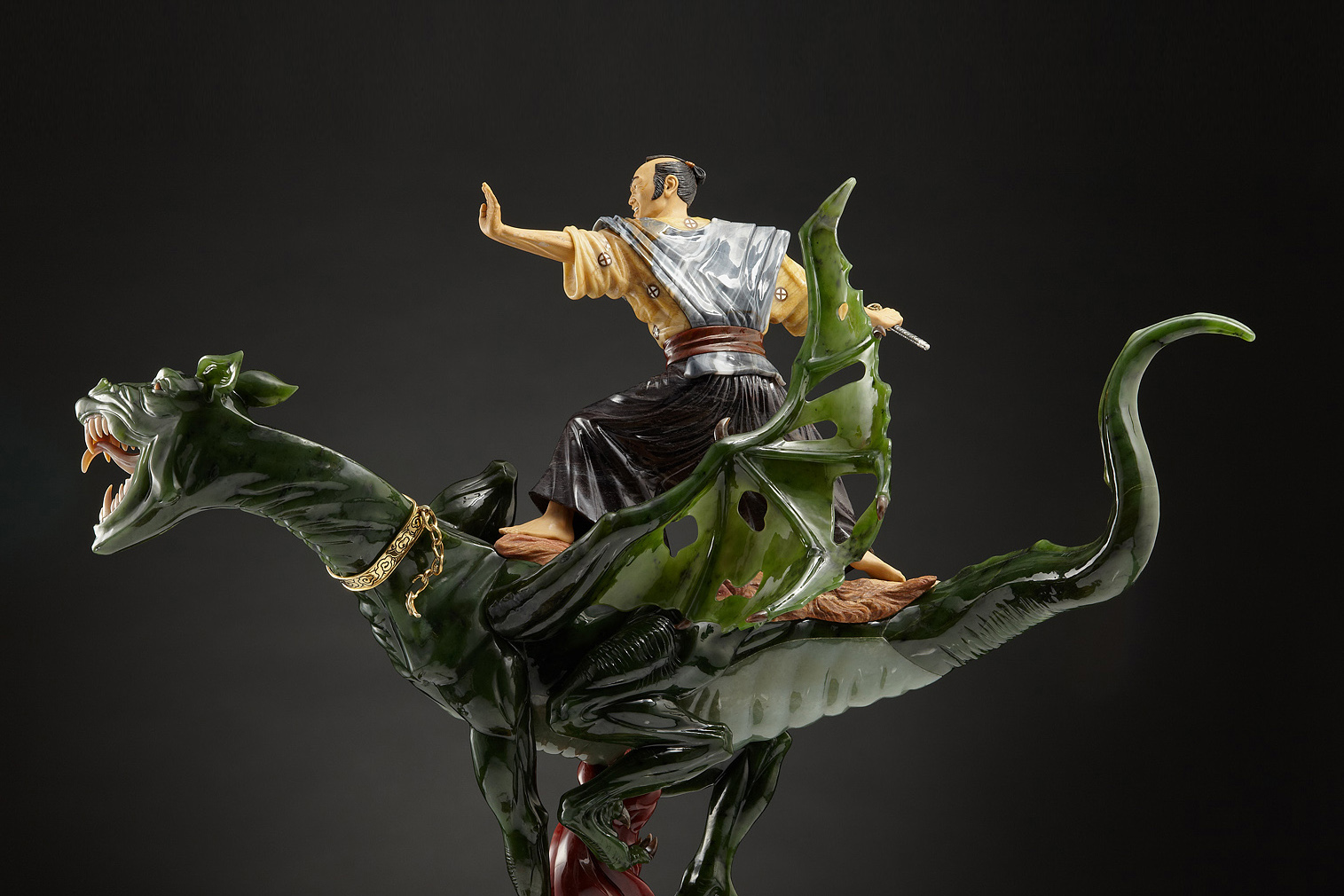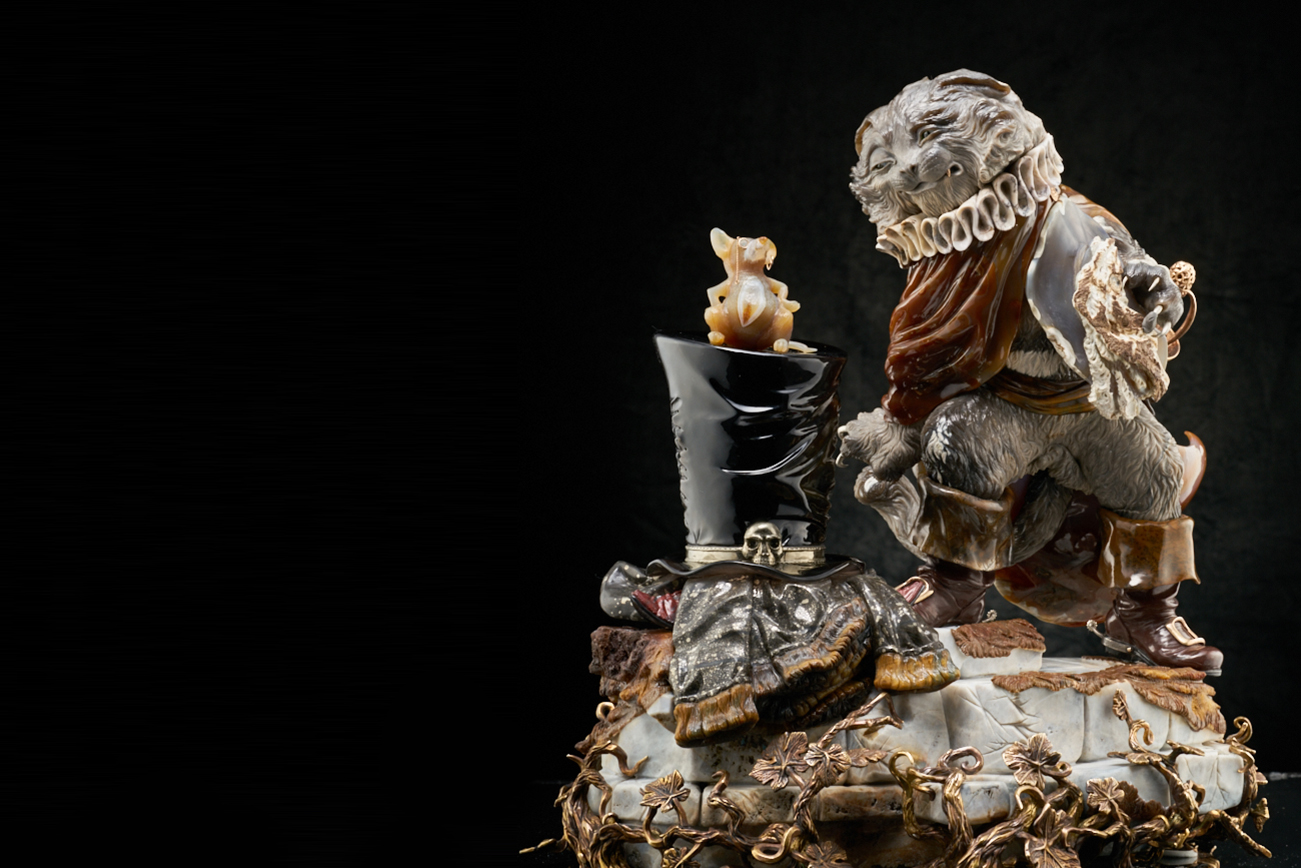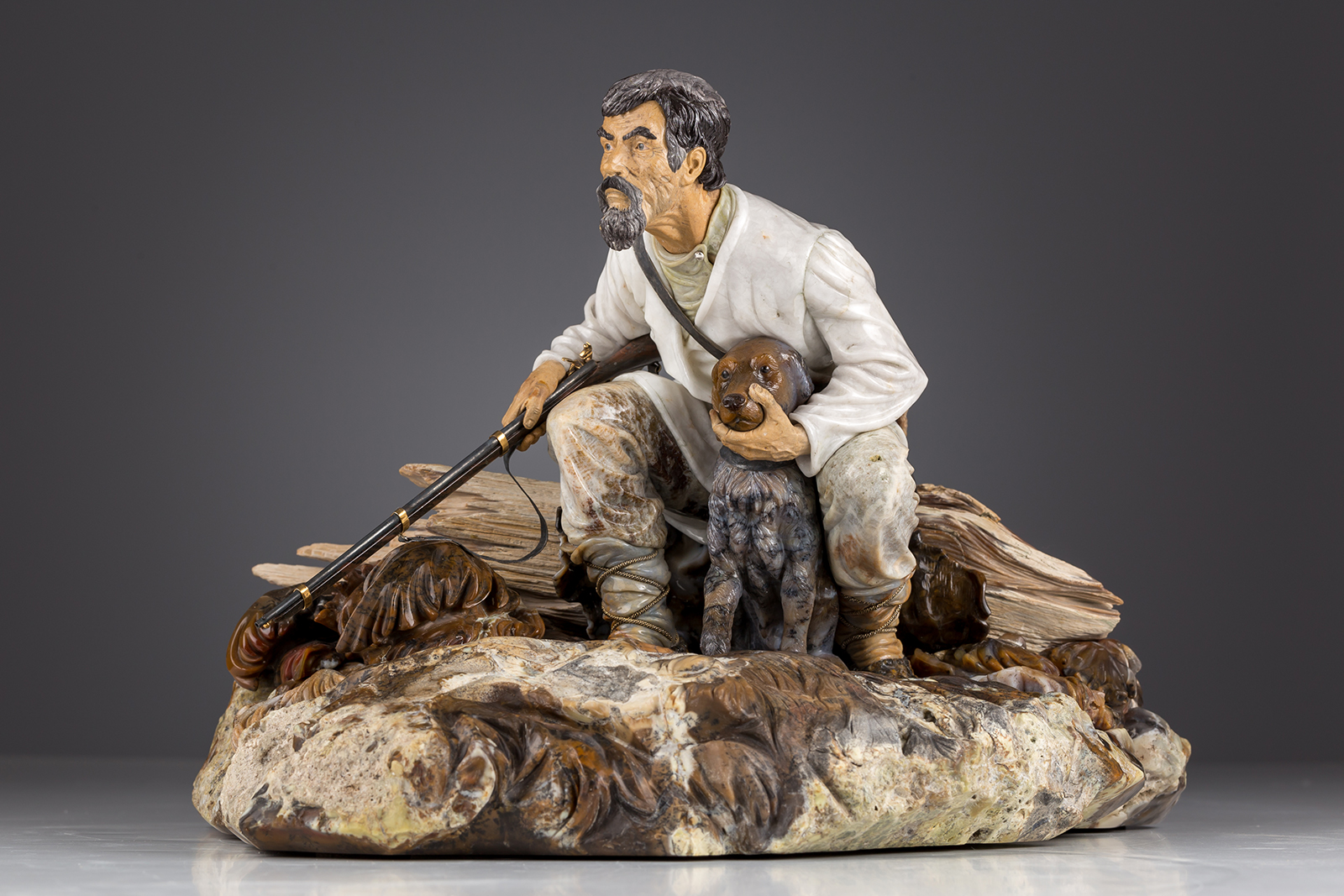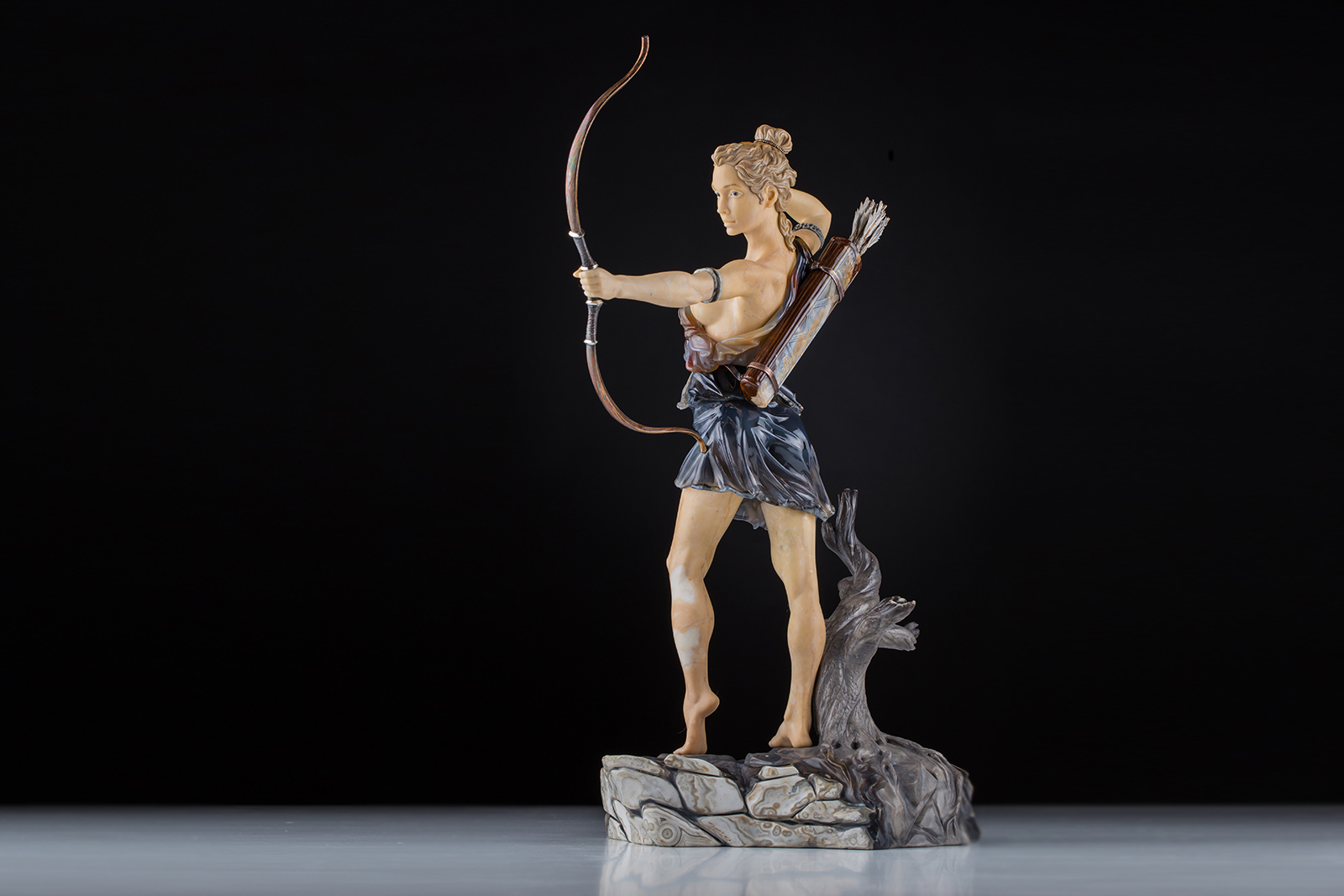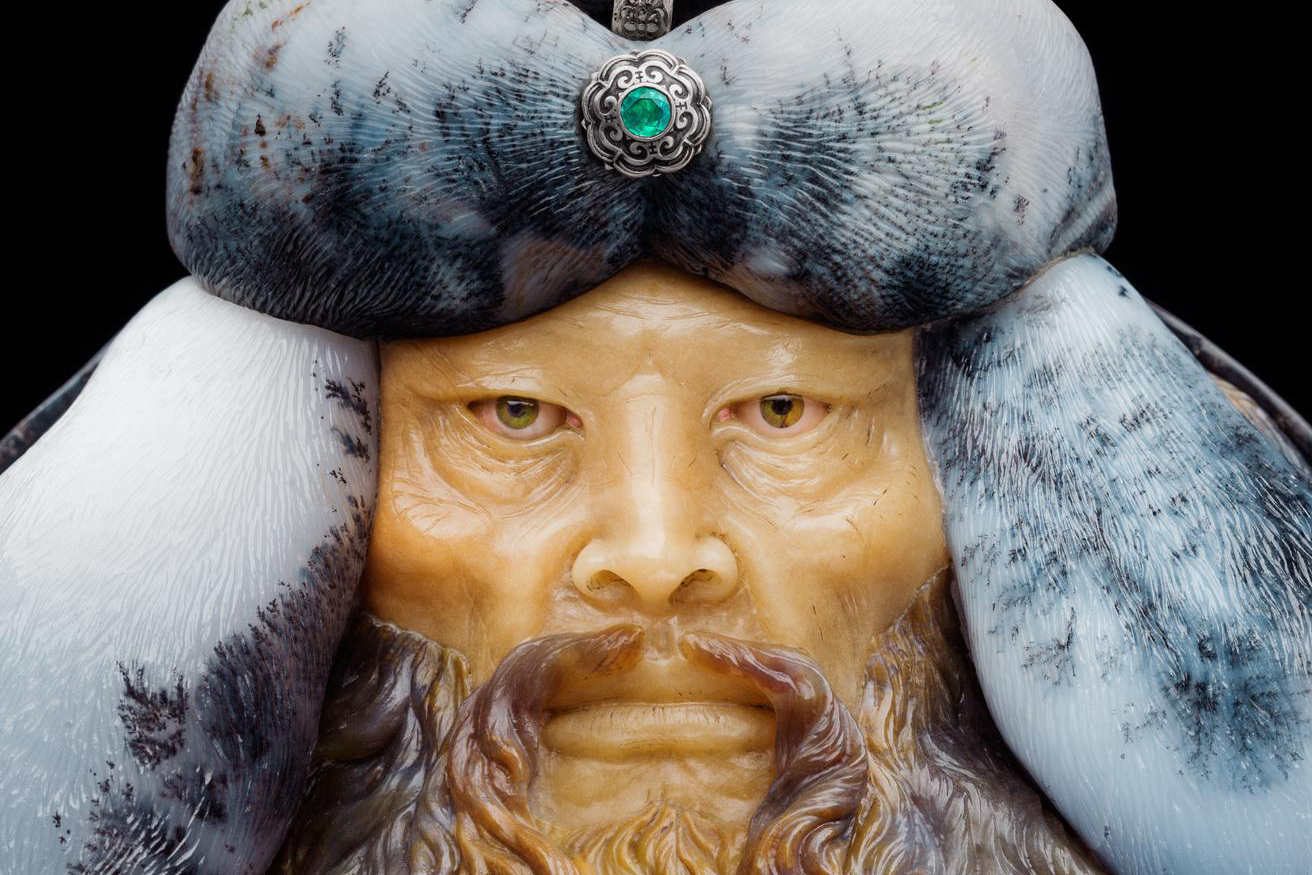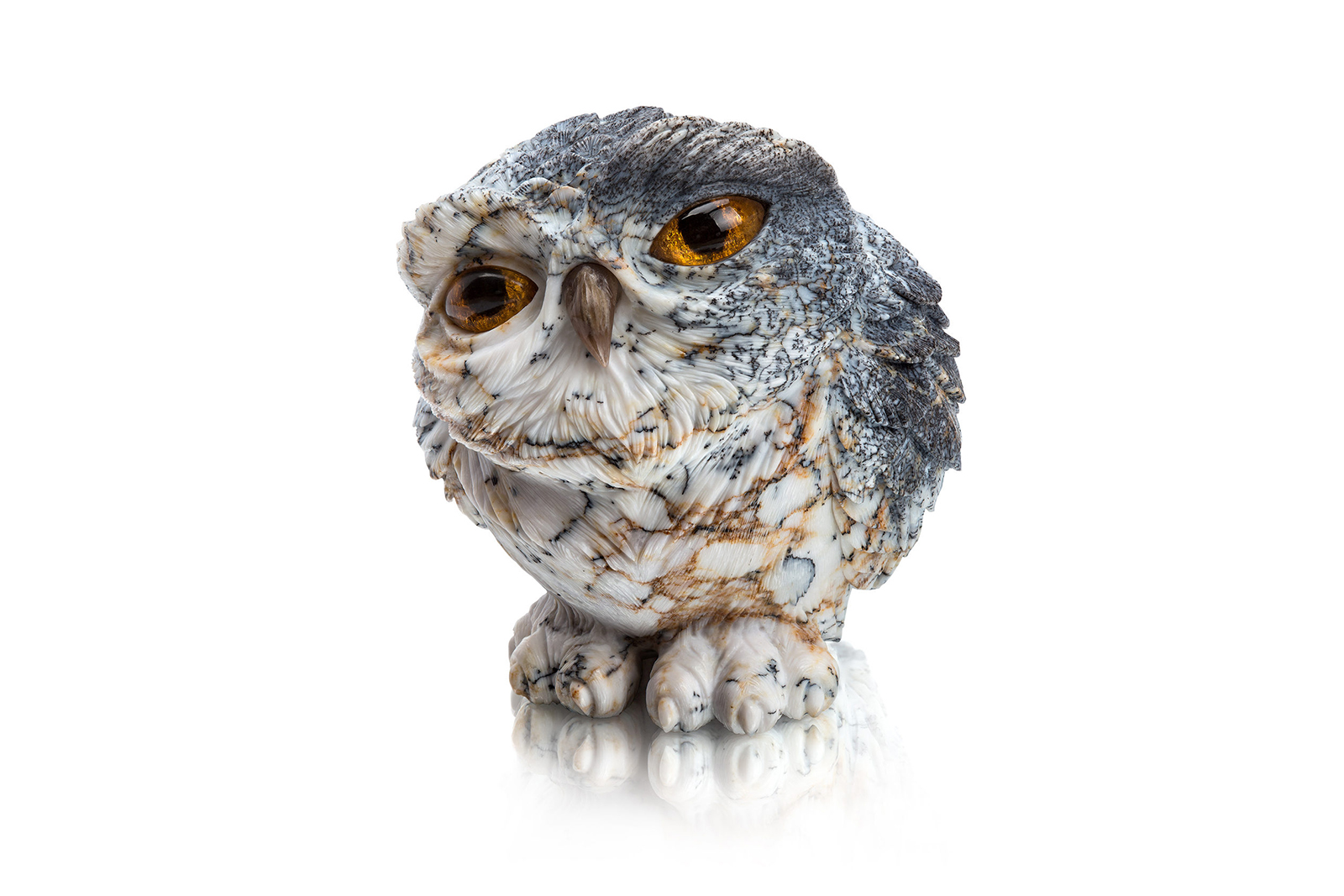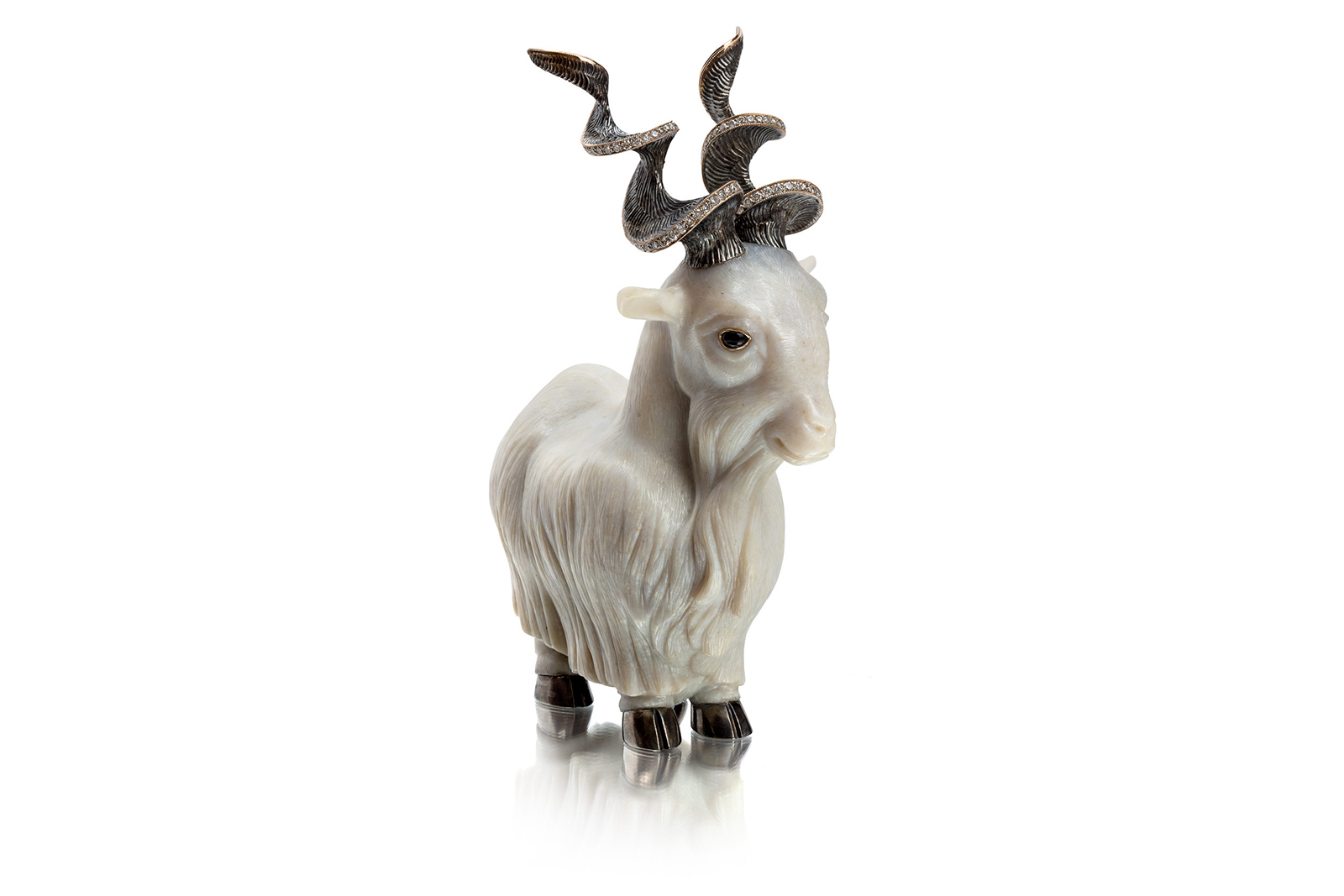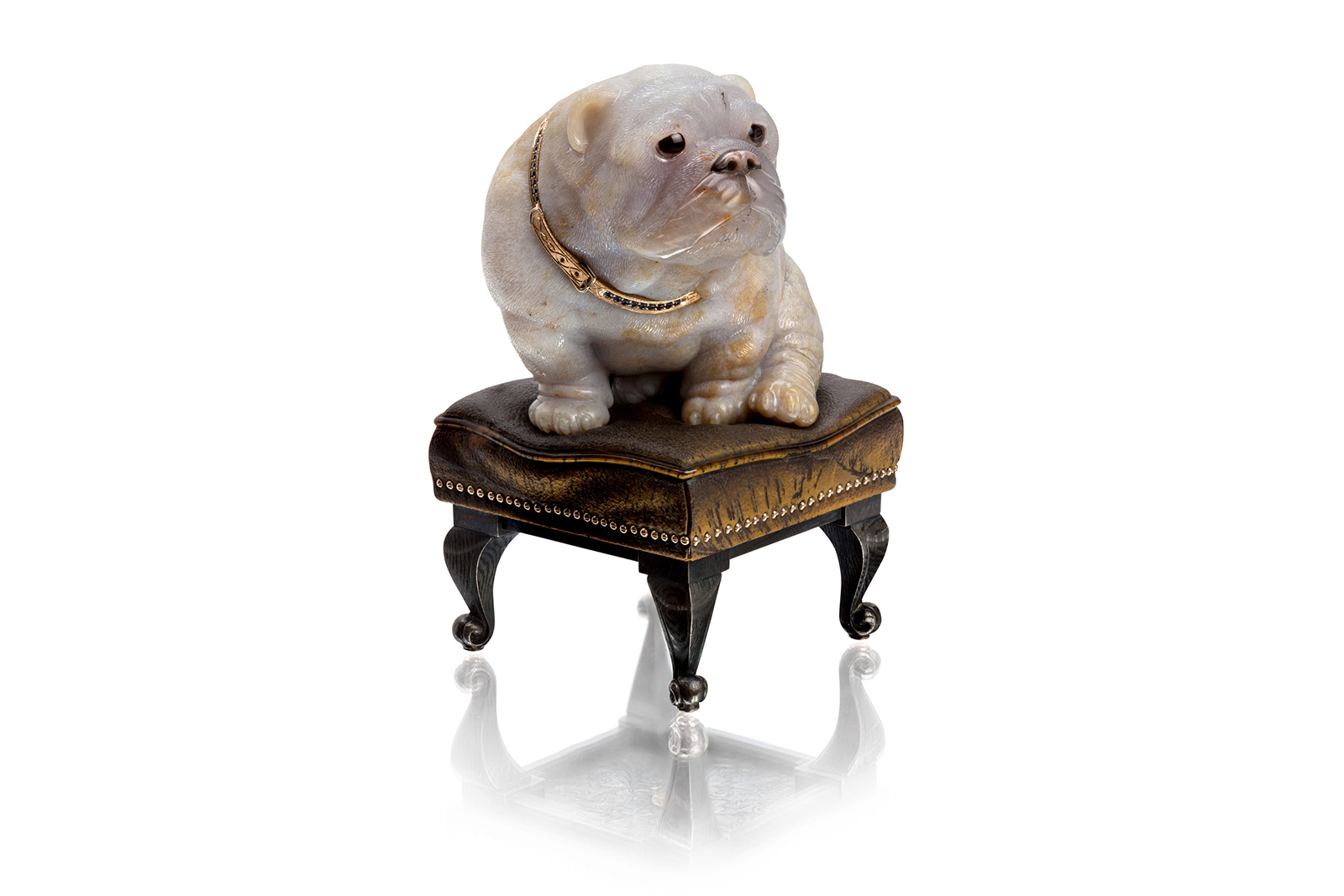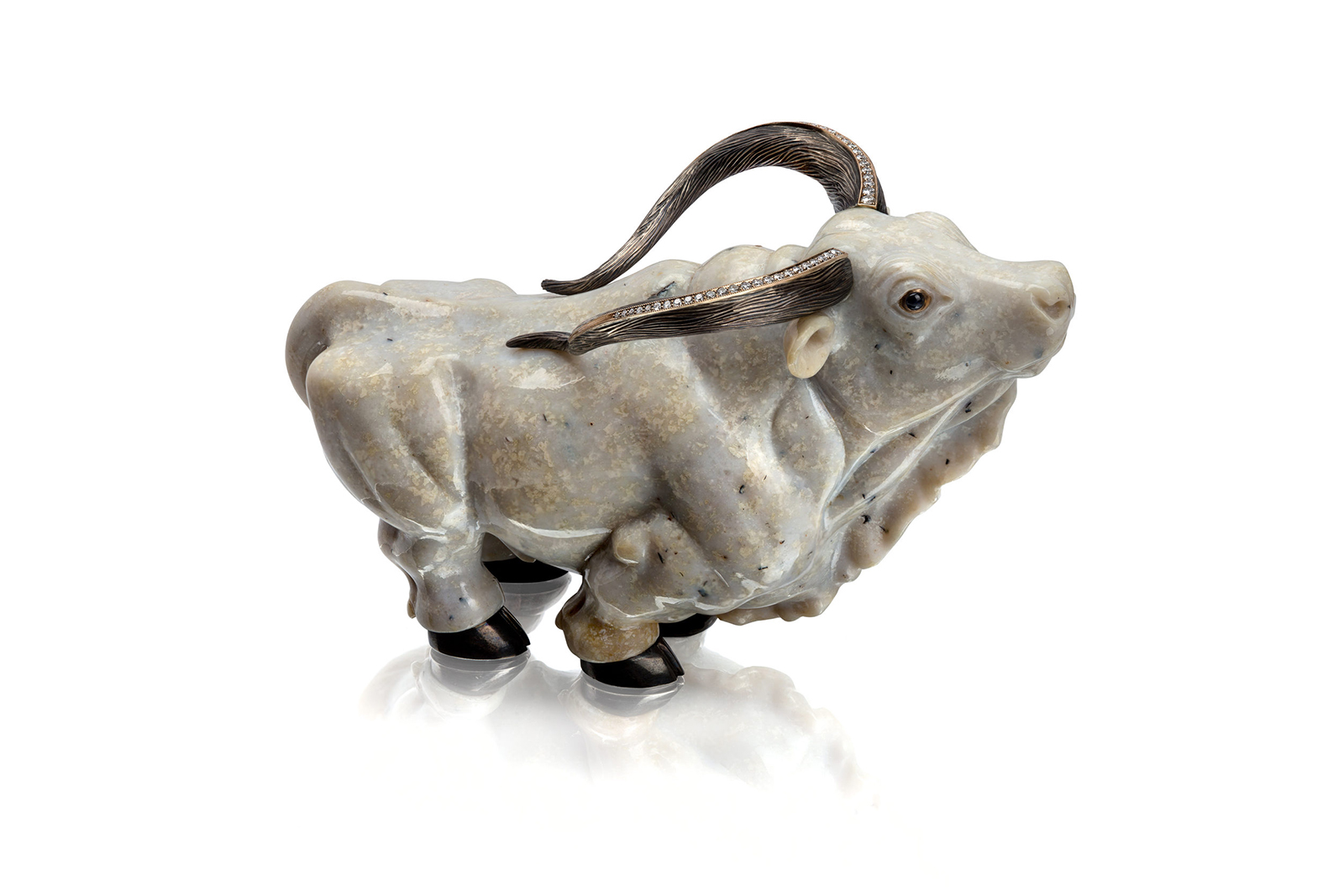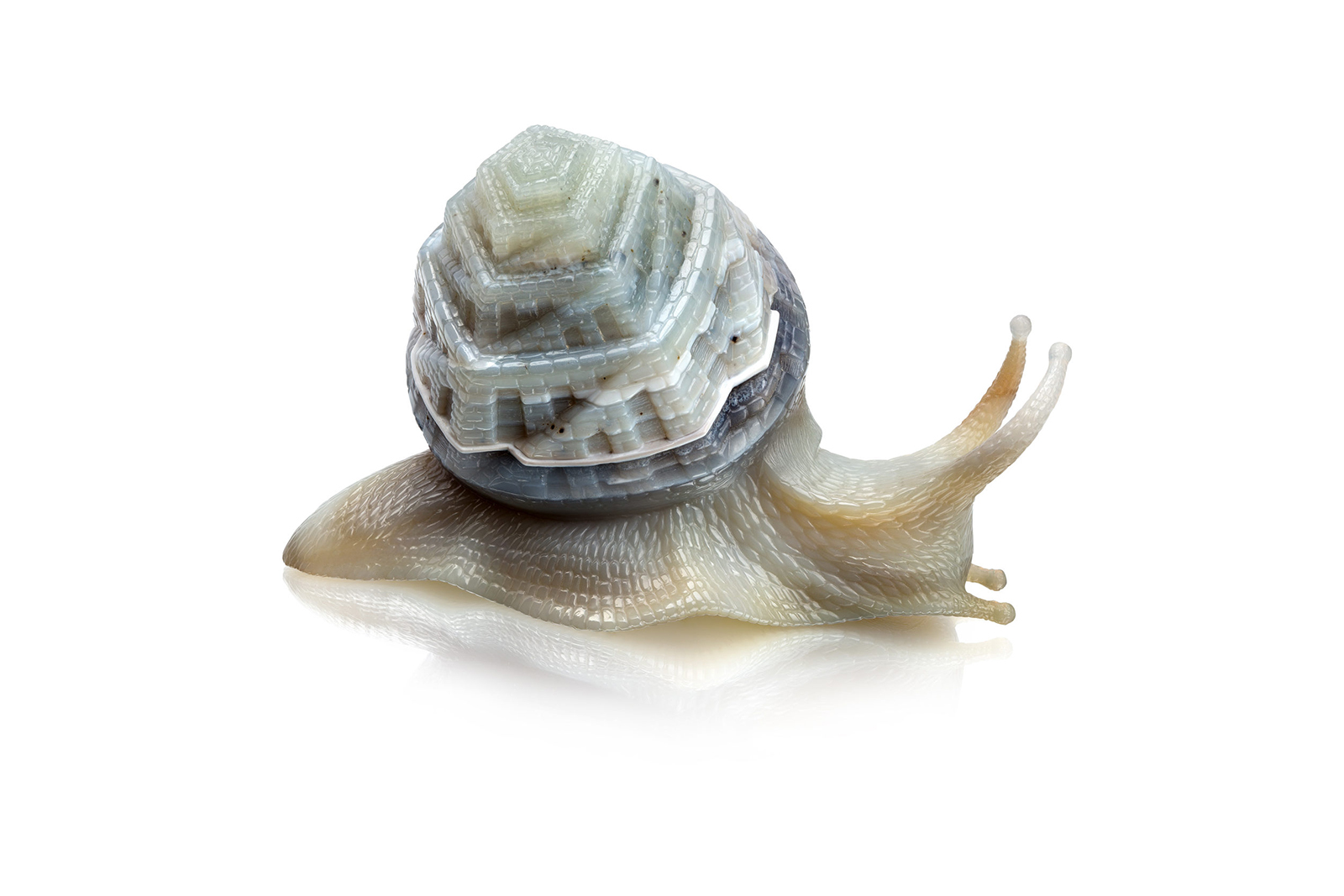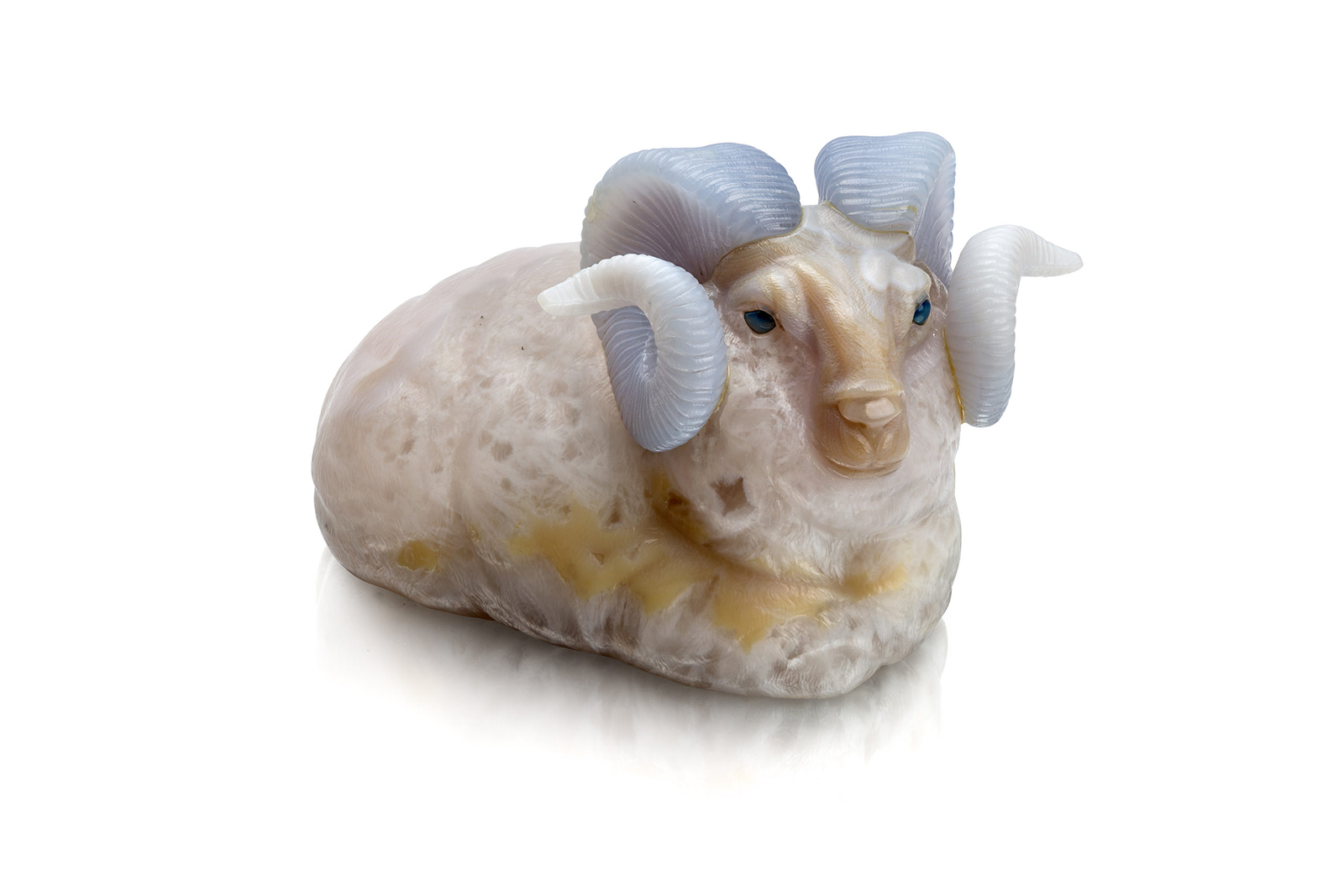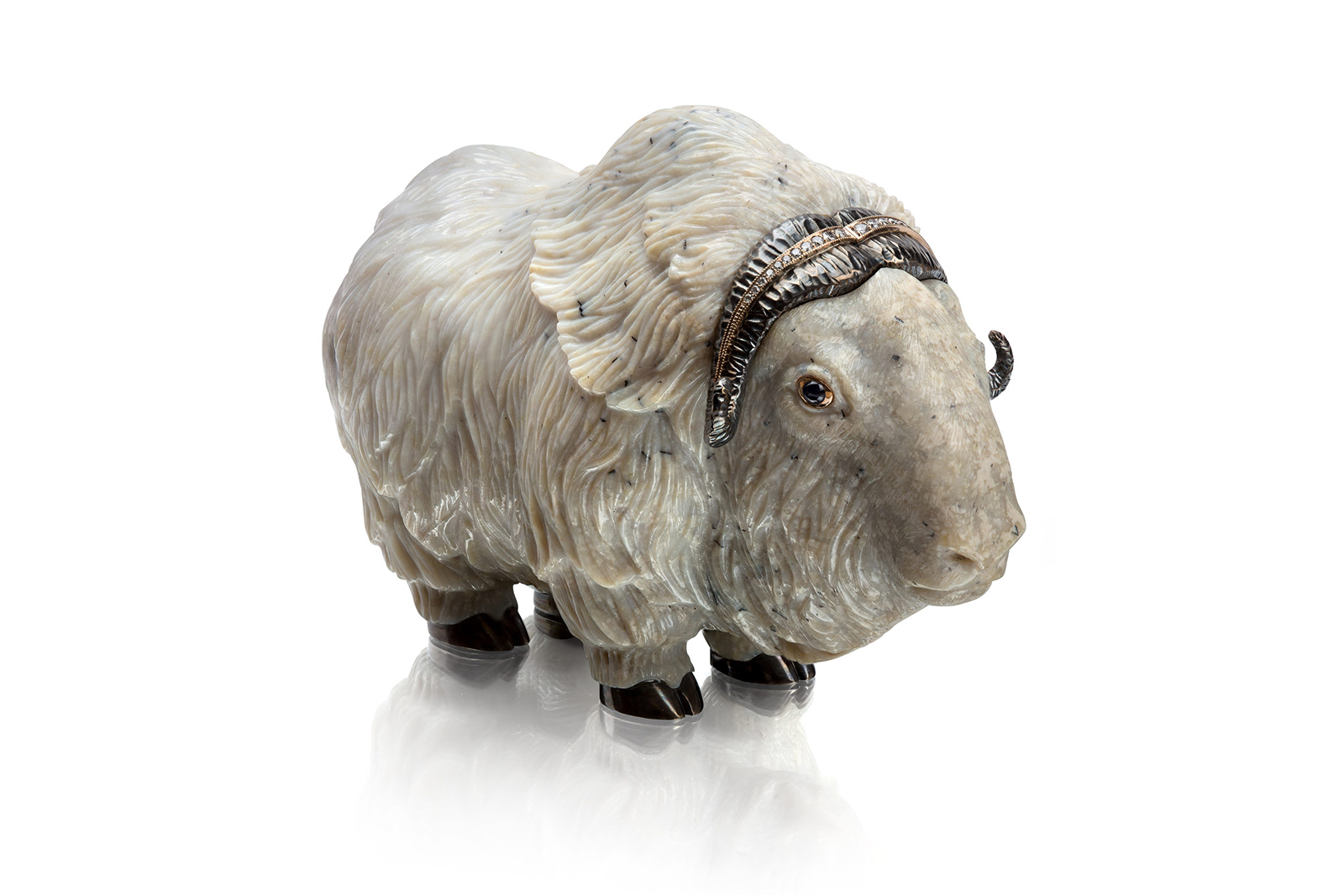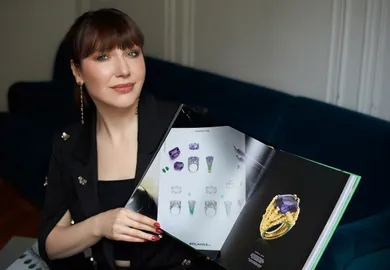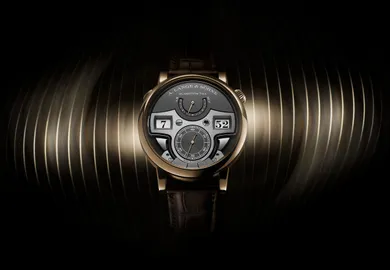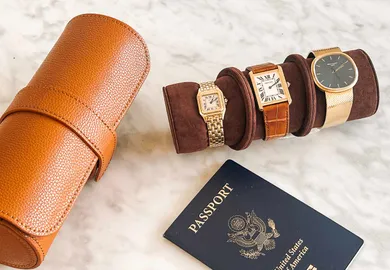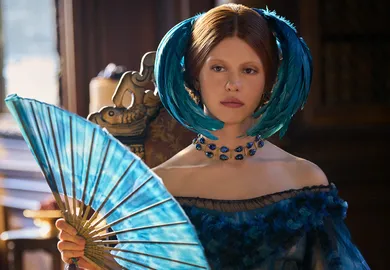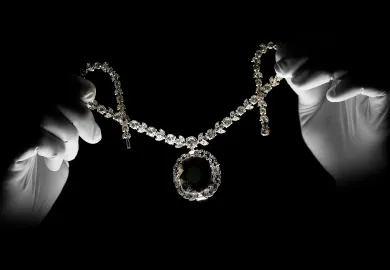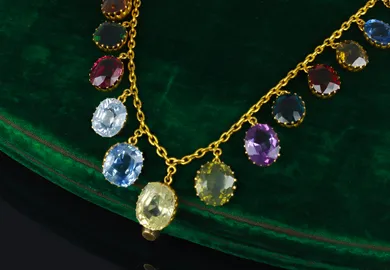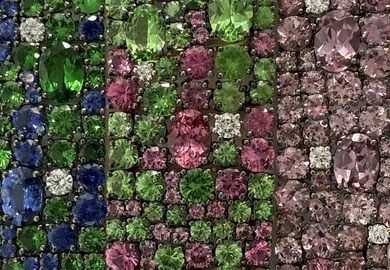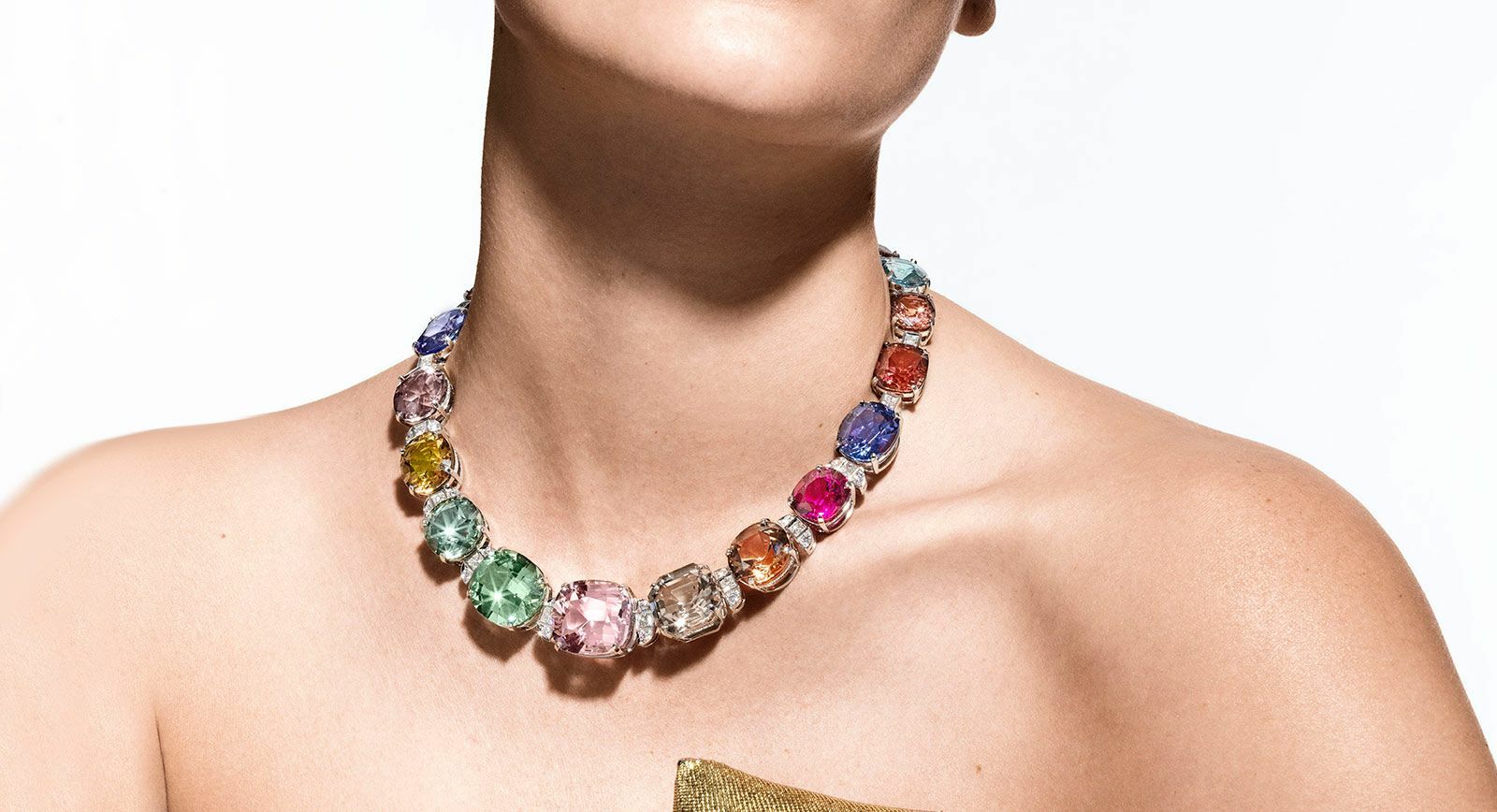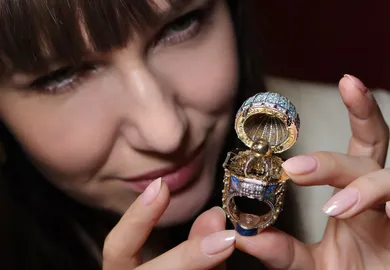
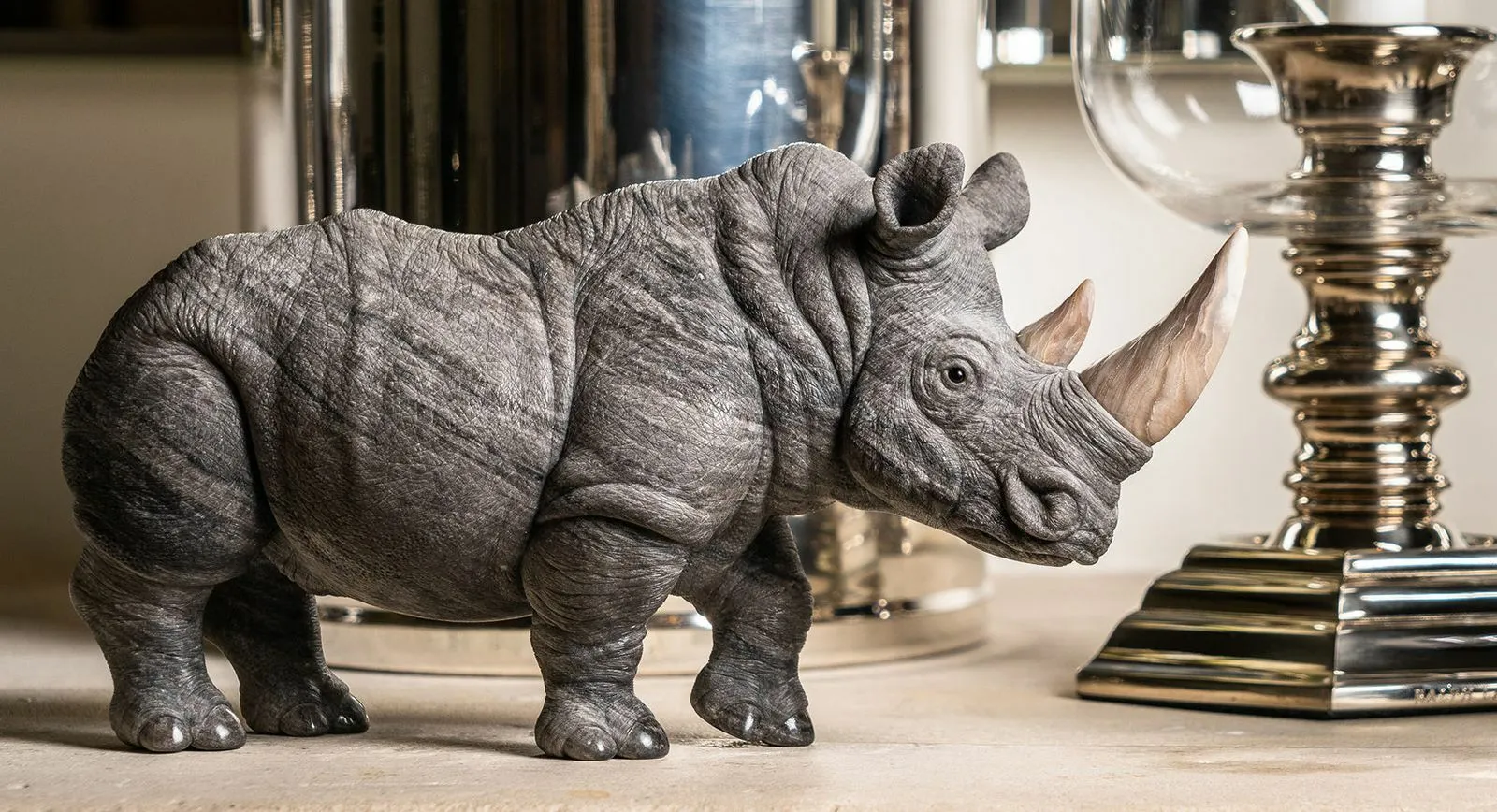
Stonecutting: A Contemporary Twist on an Ancient Art Form
The origins of stonecutting as an art form date back to ancient times, when stone served as the basic material for almost everything. Scientists ascribe not only an applied function but also the first-known attempts at aesthetic self-expression to stone ‘handicrafts’ found by archaeologists on every continent of our planet. Today, technological advances offer artists a huge array of materials and techniques for these purposes, but some remain focused on perfecting the skill of stonecutting, continuing in the footsteps of Fabergé.
In the world of jewellery, it is currently the Russian school of stonecutting that, judging by most of the top exhibitions, is one of the strongest but not one of the most prominent. This is why I have decided to introduce you to the key proponents of the art form and to the incredible potential of this historic skillset.
Anatoly Sorokin
The pieces that emerge from Anatoly Sorokin’s stonecutting workshop can’t be summarised as mere representations, compositions or unique stones. Rather, they’re a dialogue, a dialogue between man and nature, aimed at strengthening communication between the two. For the purposes of this ‘conversation’, Anatoly has selected natural stones, believing that each of them, like a person, has its own energy, memory and strength. The craftsman appreciates not only each individual specimen but also creates whole ensembles from them: from exclusive interior designs and Florentine mosaics to canvases made of the finest cuts of stone, selected in a surprising manner for their colour and pattern. Anatoly sincerely considers stone to be nature’s most perfect invention, especially if they fall into the hands of an expert. But at the same time, as he philosophically explains: “People come into this world and die, but stones live on for millennia.”
Denis Bogomazov
The works of the Ekaterinburg-based stonecutter are quite easy to spot… naturalistic forms, a keen attention to detail and subject matter, all combined with a high level of workmanship. During his 26-year career, Denis has participated in more than 70 different exhibitions, from local to international, professional to personal. The saying “it’s not about winning, it’s the taking part that counts,” does not apply here however: Denis has received numerous Grand Prix awards and his creations have been included in exhibitions at Russian state museums, in addition to being displayed as part of private collections in the USA, Germany, Australia, Italy and China. I think the incredible eyes he creates for his subjects are always recognisable as well! The eyes do not just reflect, they breathe soul into carved aquamarine, jade, citrine, topaz, chalcedony, quartz and other natural stones, revitalizing them. It already seems as though, any minute now, the rat will start eating cheese, the salmon will flap its tail, and the dragon will recount his exploits and adventures.
Ekaterina Kostrigina
A ‘Petersburg classic’ is how many define the work of St Petersburg jewellery designer, Ekaterina Kostrigina, and this seems to be a very accurate description. The harmonious blend of past traditions and techniques with modern ideas has become Ekaterina’s calling card. In her jewellery, she uses carved gemstones as well as precious stones, pearls and enamel to create a single sketch composition. For example, in the Bear and Wolf pendant, Squirrel earrings and Horse cufflinks, elements of carved sapphirine, agate, tsavorite and smoky quartz are the central elements, while in the case of her sacred scarab beetles and her floral pieces, carved stones simply serve to highlight the overall tone.
Studio Svyatogor
Studio Svyatogor is one of the largest professional stonecutting workshops of the Ural school. It celebrates its 25th anniversary this year. Here, they apply a complex volumetric mosaic technique using jewellery-making methods, similar to the approach taken by the craftsmen of the renowned Carl Fabergé. The workshop’s credentials are corroborated by certificates issued by the Kremlin Armoury, the Russian State Repository for Precious Metals and a special diploma from the German Association of Stonecutters. They create exclusive sculptures and compositions made of semi-precious natural stones, gemstones and precious metals that can become the crown jewel in any art collection or decorate the most sophisticated of interiors. You are likely to enjoy the subject of each piece: the mythical Satyr, the Serpent, Bacchus, the Sphinx and Shiva coexist with the fabulous Cheshire Cat and such historical figures as Peter the Great, Ivan the Terrible, Alexander Suvorov, Julius Caesar and Georgy Zhukov (the ‘Marshal of Victory’). From my experience, I can say that, regardless of the subject, it is interesting to examine each of these from every angle.
Anna Nova
The Anna Nova jewellery brand, founded in 2004 by Anna and Oleg Barinov in St Petersburg, has several related areas of focus: miniature interiors, luxury accessories (‘objets de luxe’), limited jewellery collections and items with a Russian Orthodox theme. Regardless of the purpose of the piece in question, Anna and Oleg masterfully combine the art of stonecutting with gemstones and metals, pearls and enamel, mosaics and engraving. Anna Nova’s compositions are extremely labour-intensive and intricate in their execution, varying from simple miniatures to complex masterpieces that have numerous details.
This is not at all surprising given that the main artistic reference point for Anna and Oleg is what Russian jewellers were producing at the turn of the 20th century, including pieces by Carl Fabergé. Anna Nova’s works have been highly praised at exhibitions in both Russia and abroad, something which has led them to being exhibited at the Hermitage (St Petersburg, Russia) and the Deutsches Edelsteinmuseum (Idar-Oberstein, Germany).
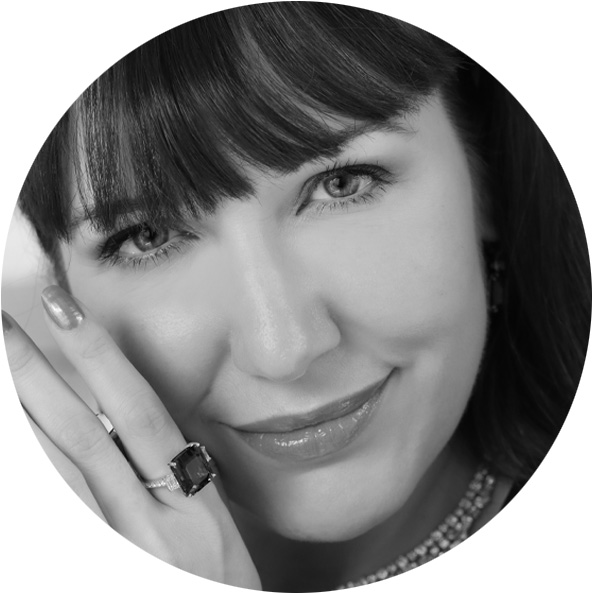
WORDS
Katerina Perez is a jewellery insider, journalist and brand consultant with more than 15 years’ experience in the jewellery sector. Paris-based, Katerina has worked as a freelance journalist and content editor since 2011, writing articles for international publications. To share her jewellery knowledge and expertise, Katerina founded this website and launched her @katerina_perez Instagram in 2013.
